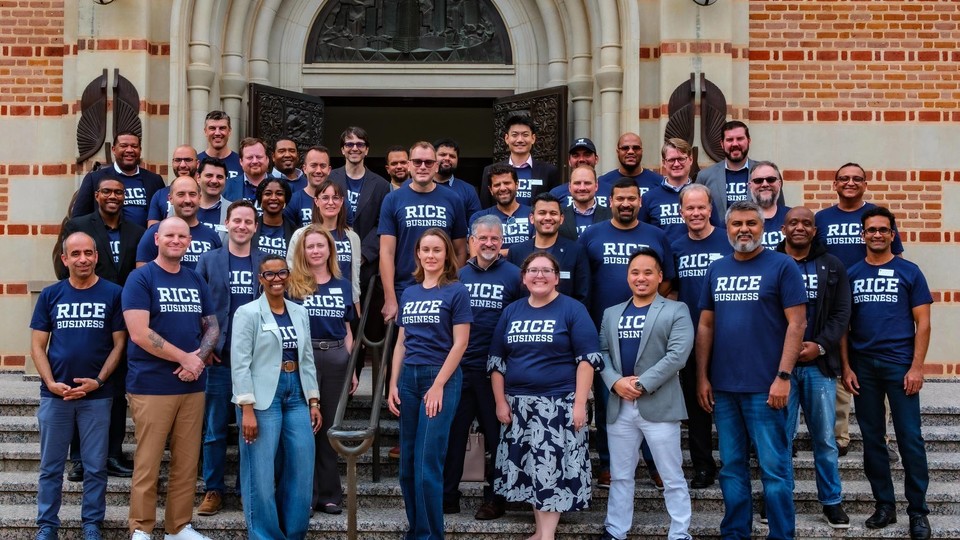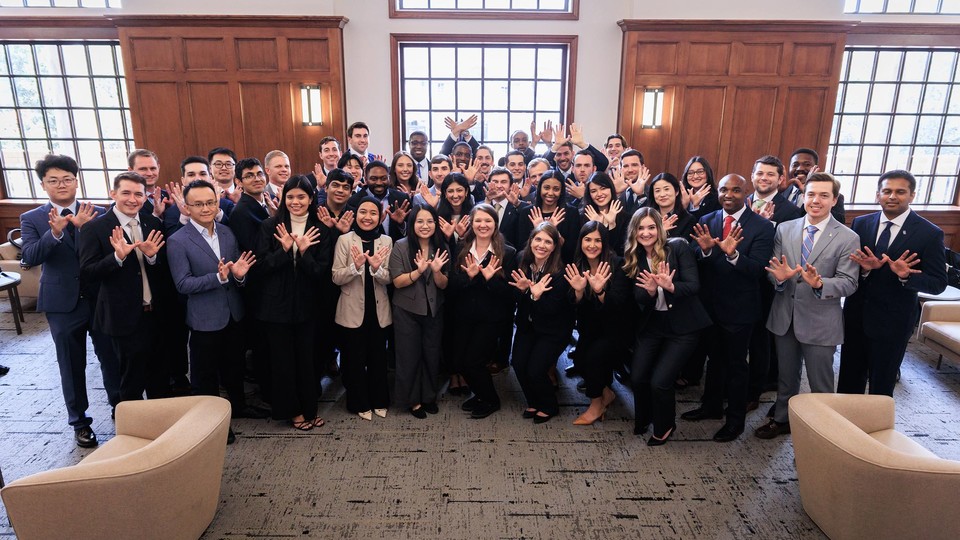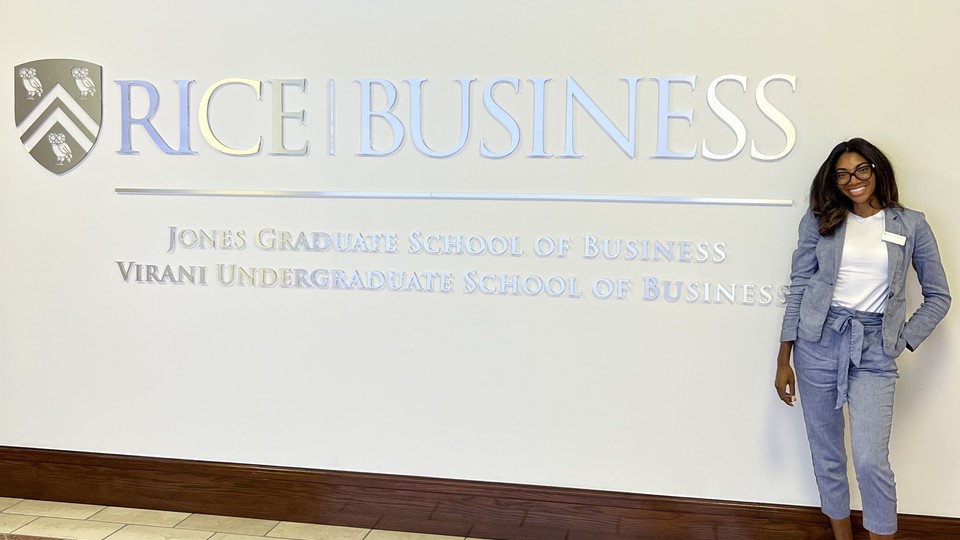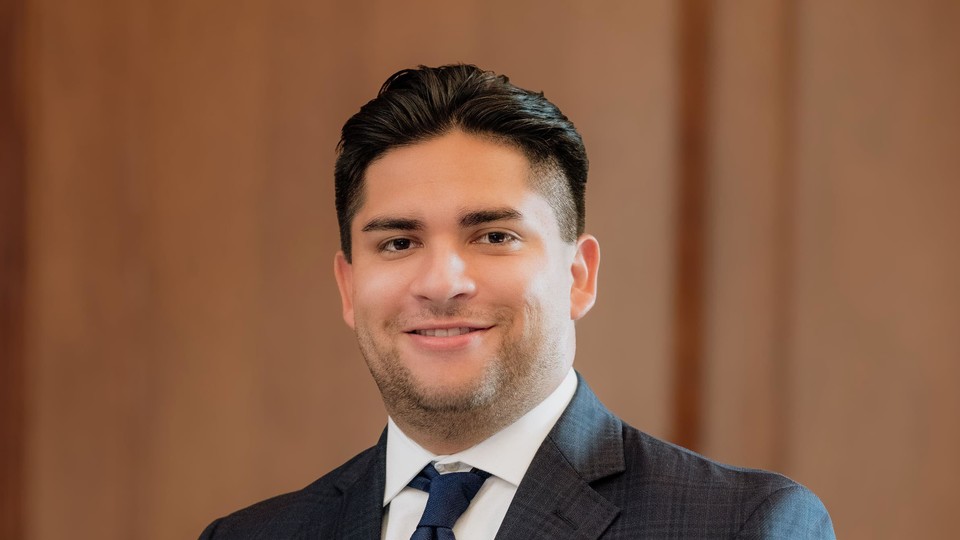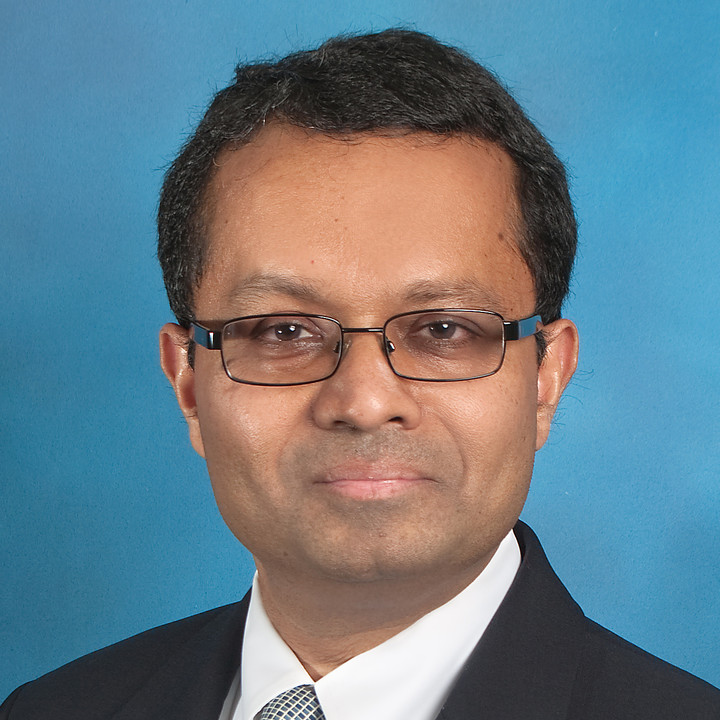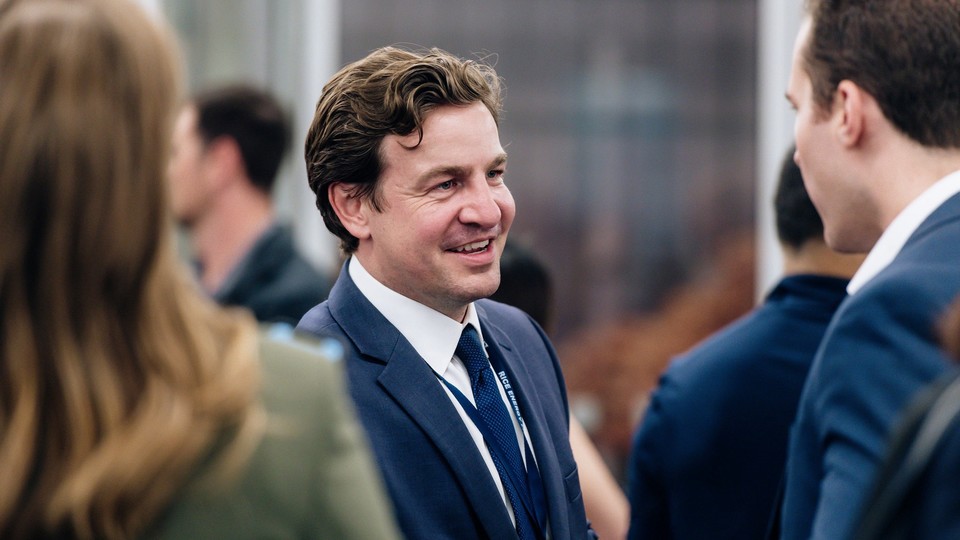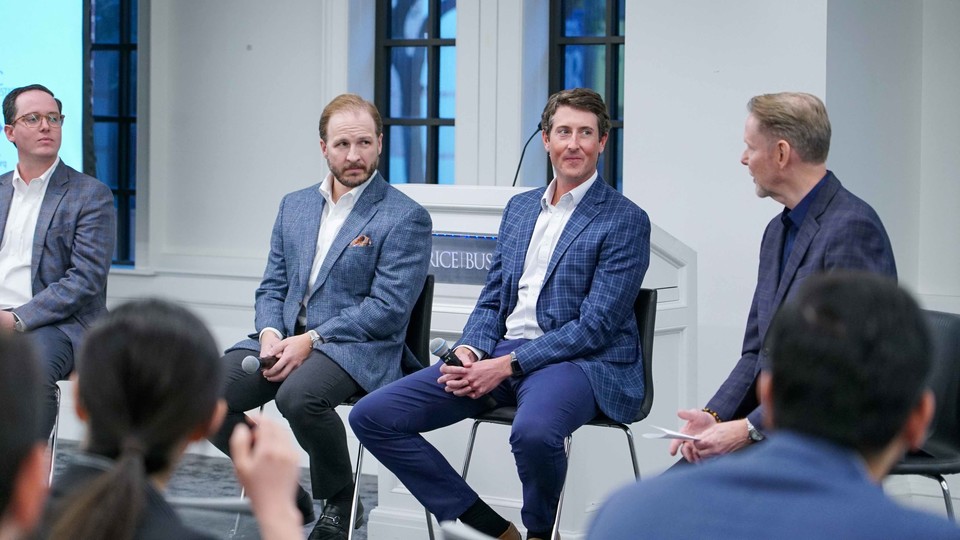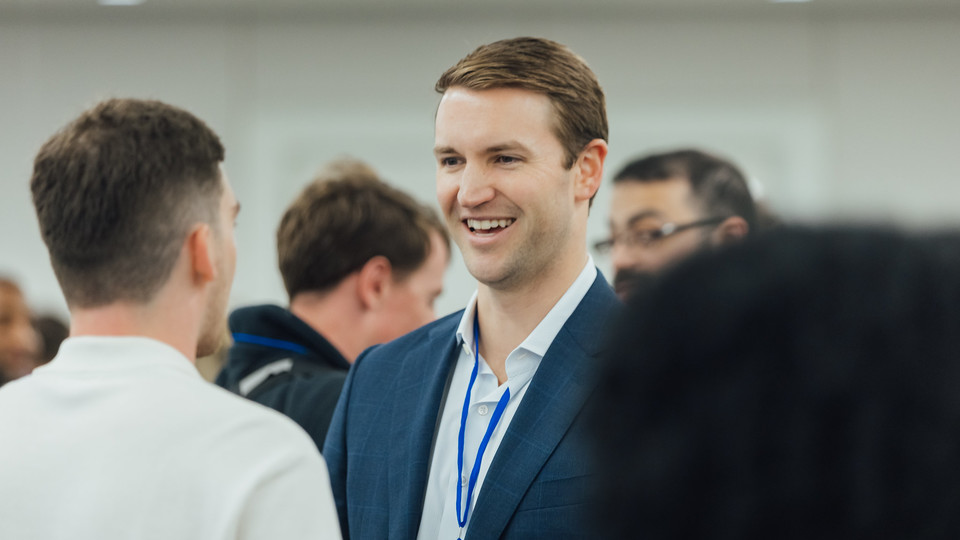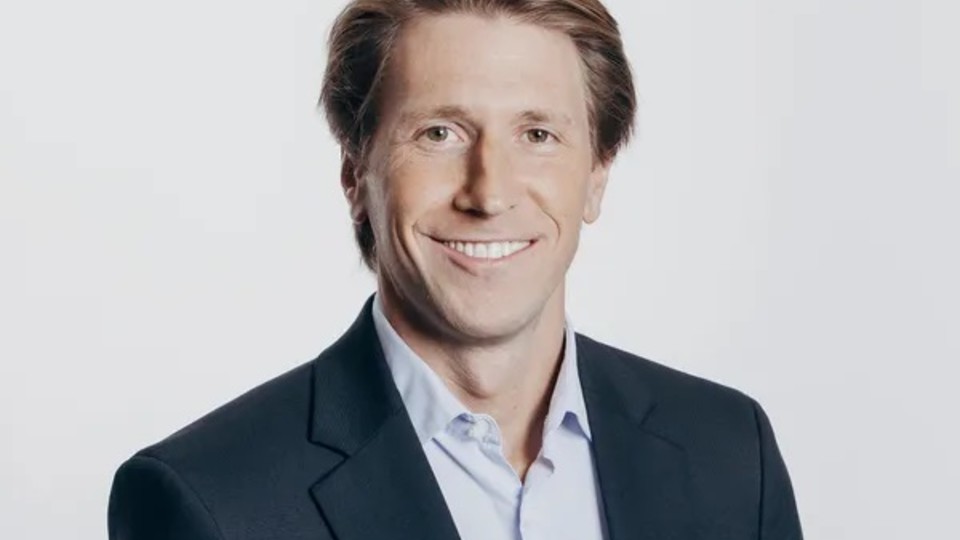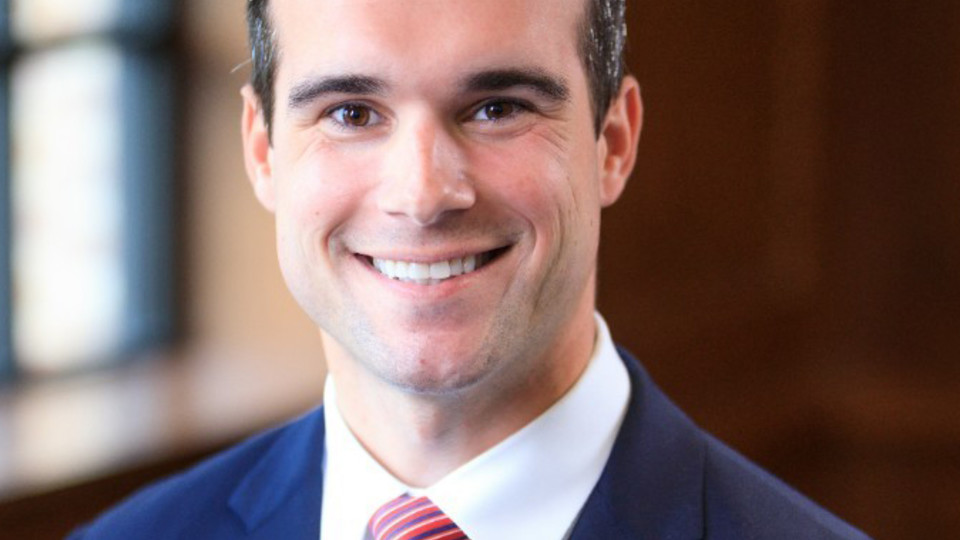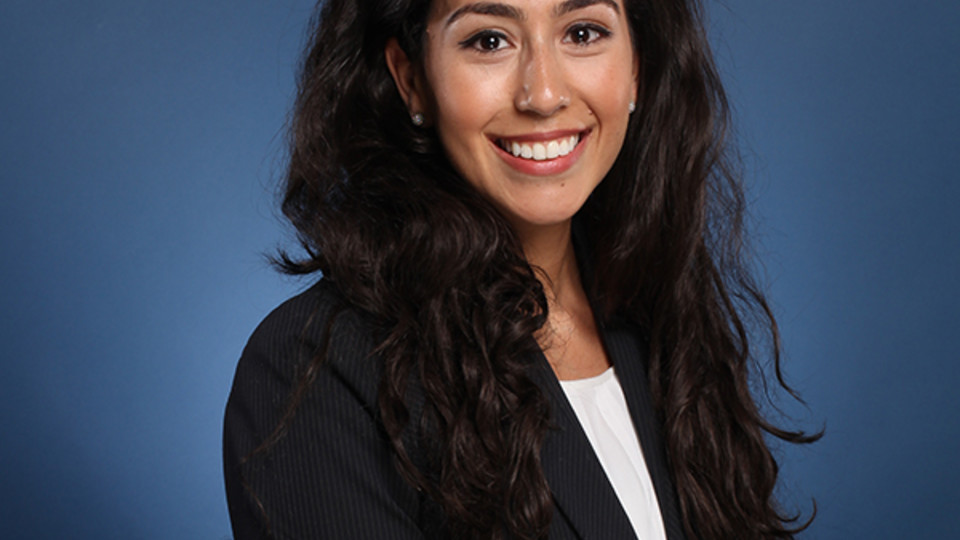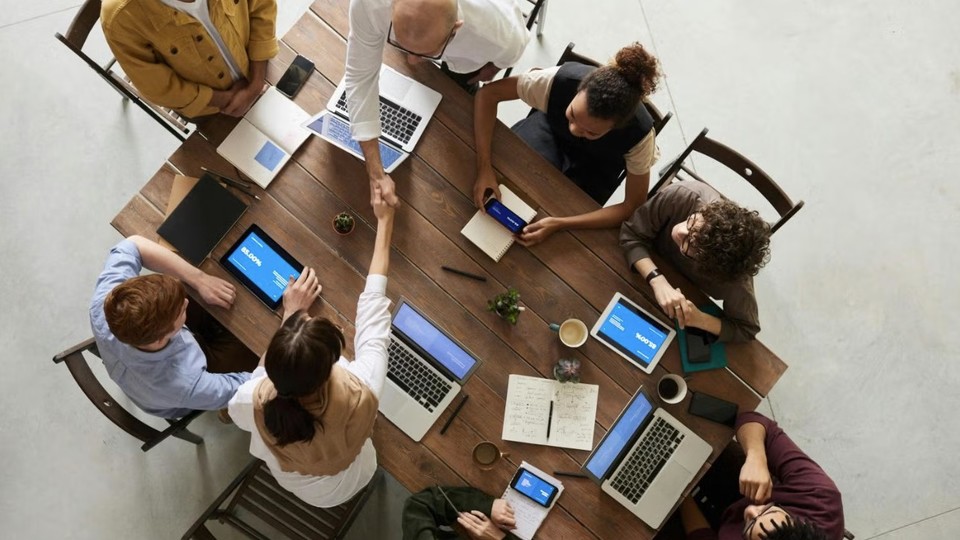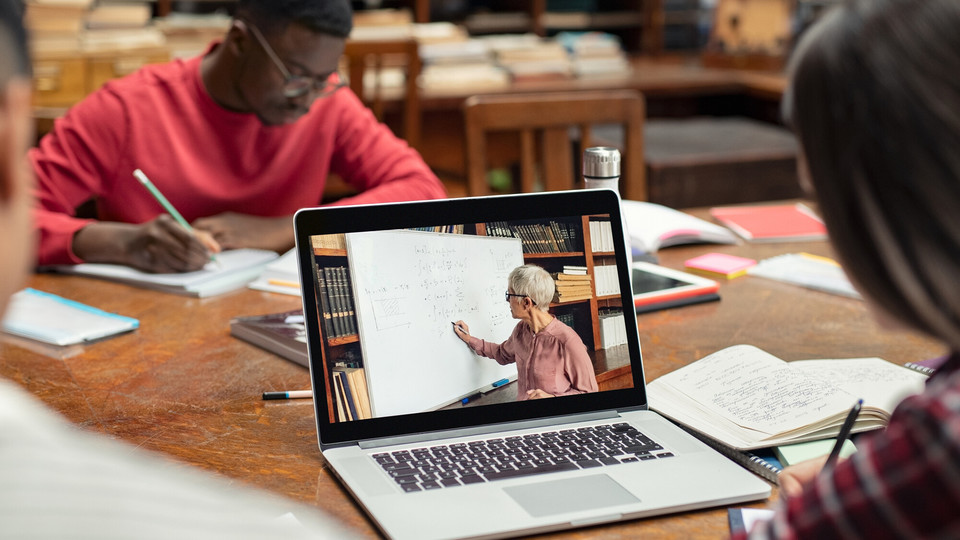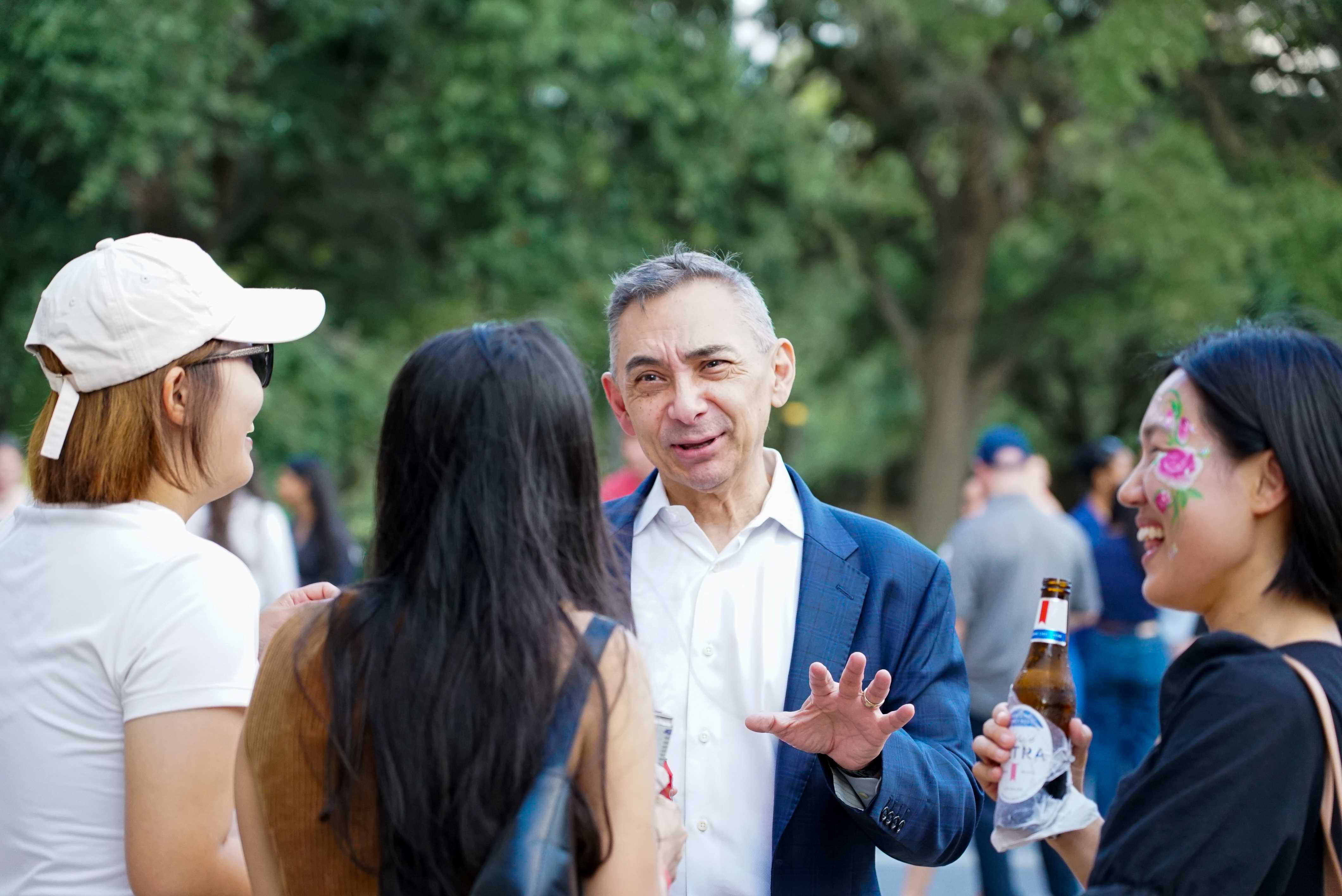
6 Reasons These Working Professionals Chose the Rice MBA
From our high national rankings to our unmatched networking, here's why working professionals are choosing the Rice MBA in Houston.


Class of ’27 students have begun their MBA journey, which means Rice Business continues to grow — in both numbers and ambition. Kicking off this year’s Launch Week, we asked a few of our new Professional and Hybrid MBA students: Why did you choose Rice?
1. Rice Reputation
Rice Business is nationally recognized for academic excellence, innovative curriculum and strong career outcomes, making it a top choice for ambitious professionals.
“I knew about the university reputation and prestige of Rice. Plus, it’s right in the center of the energy capital,” says Professional MBA Kunal Chopra, a project controls lead at ExxonMobil.
Hybrid MBA Shanker Nair, a senior reservoir engineer, was influenced by alumni in his own workplace. “Several of my colleagues have completed the Rice MBA and spoke very highly of their experience, which gave me confidence that this was the right place for my professional and personal growth.”
2. Community Matters

With small class sizes and a collaborative culture, Rice Business fosters meaningful relationships among students, faculty and alumni.
Professional MBA student Ali Mroue was drawn to the “tight-knit community, diversity among the cohort and prestige that comes with it.”
Hybrid MBA student Marcelo Bini, a U.S. Department of Treasury special agent, agrees. “I chose Rice Business for its close-knit and collaborative community. The world-class faculty create an environment where meaningful relationships and mentorship thrive.”
Interested in Rice Business?
3. Networking and Industry Representation
Located in Houston, Rice Business offers unmatched access to leaders across industries — from Fortune 500 companies to fast-growing startups.
“It offers a diverse cohort with people from multiple industries, which brings in various perspectives to the classroom discussions,” shares Chopra. “This creates opportunities for me to learn from people external to my organization and hopefully allow me to gain insights and skills that I can apply to my work.”
4. Work-Life-School Balance
Rice’s flexible programs help students manage careers, coursework and personal responsibilities simultaneously. For many, it’s this balance that makes an MBA possible.
“With a baby on the way, due in September 2025, and the ongoing process of rebuilding our home after losing it to a fire during Hurricane Beryl in 2024, the Hybrid MBA program was the ideal choice,” says Nair. “It allows me to balance personal responsibilities while still pursuing my goal of earning an MBA from a top-tier institution.”
5. Face-to-Face Learning
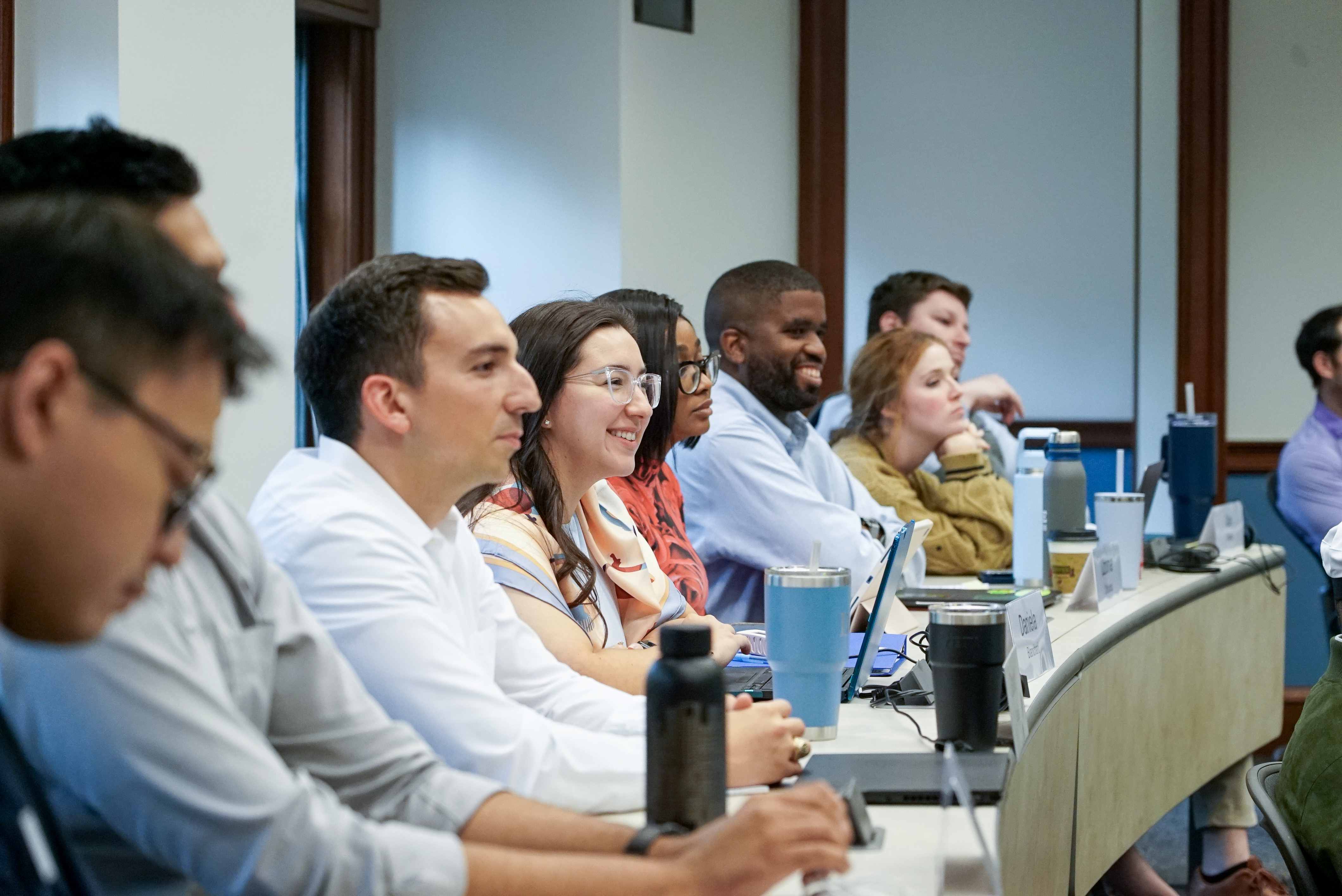
In-person interaction is central to Rice’s MBA programs for working professionals, creating dynamic discussions, collaboration and meaningful networking.
“I chose Rice’s Professional MBA program because I wanted an in-class MBA experience that would allow me to actively engage with my peers, build meaningful connections and collaborate with professionals at a similar stage in their careers,” says Mroue.
6. Immediate Impact
Rice MBA students apply what they learn in real time, turning classroom insights into workplace results from day one.
“Not only did the Professional MBA program fit best with my schedule, it allows me to apply what I learn in the classroom directly to my work the very next day,” says Blair Walker.
For Bini, the hybrid program made that impact possible. “The Hybrid MBA format aligns perfectly with my career demands, allowing me to apply lessons from the classroom directly to complex real-world challenges,” he says. “Rice’s strengths in strategy, leadership and entrepreneurship resonates with my goal of driving impact.”
For our newest students, the decision was clear: the Rice MBA combines academic excellence, industry access and a collaborative culture. No matter what brings you to Rice Business, the result is the same: a life-changing MBA experience.
Featured Students
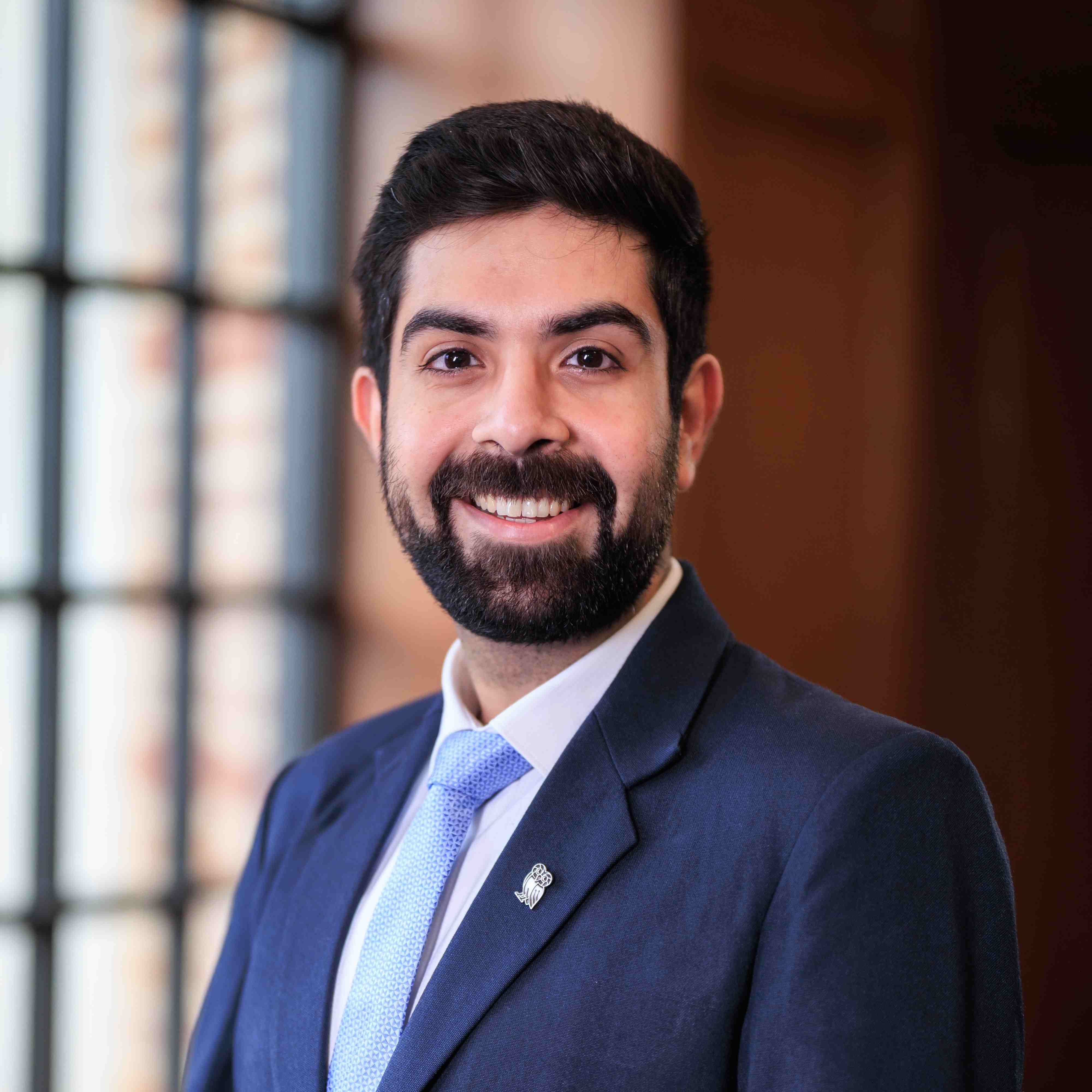
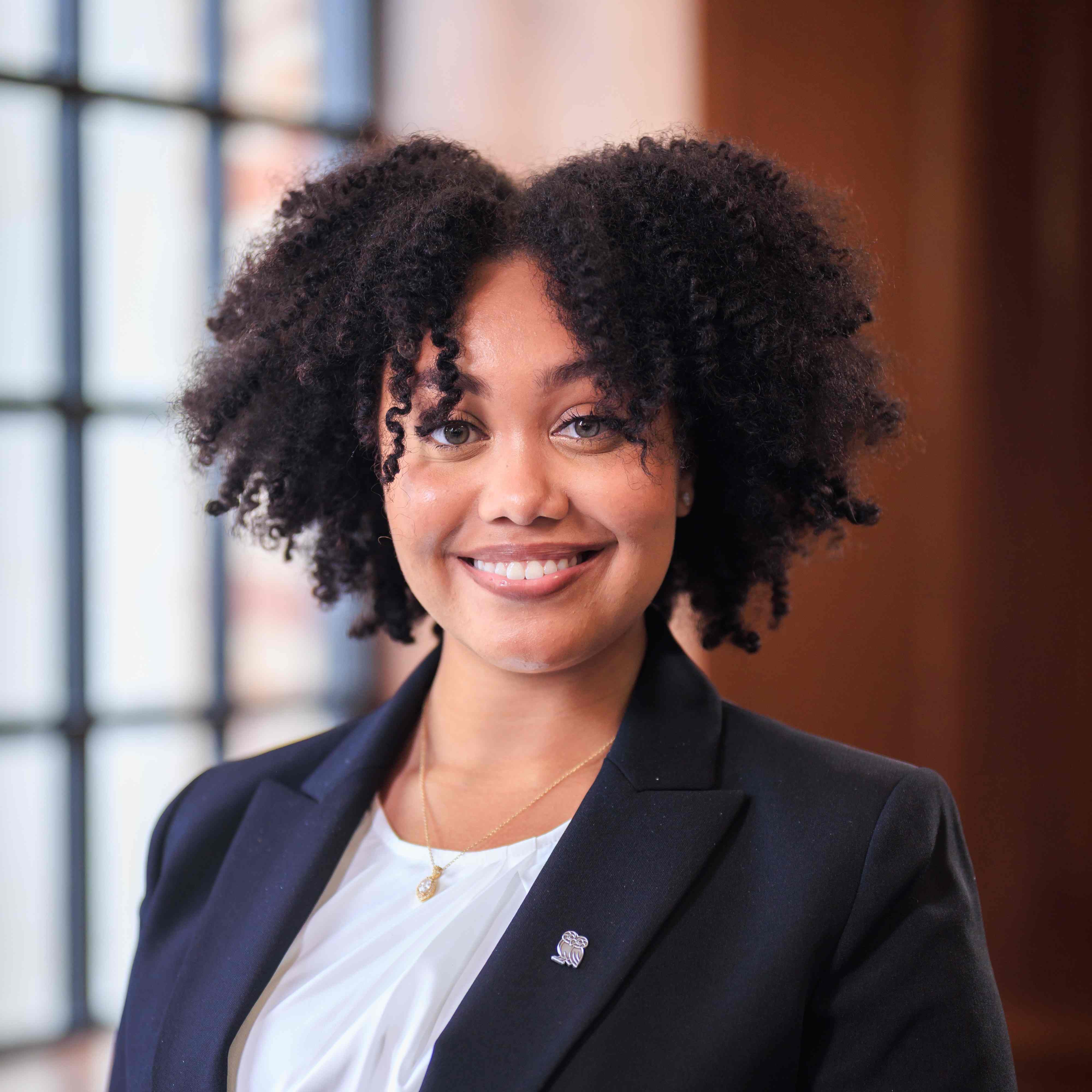
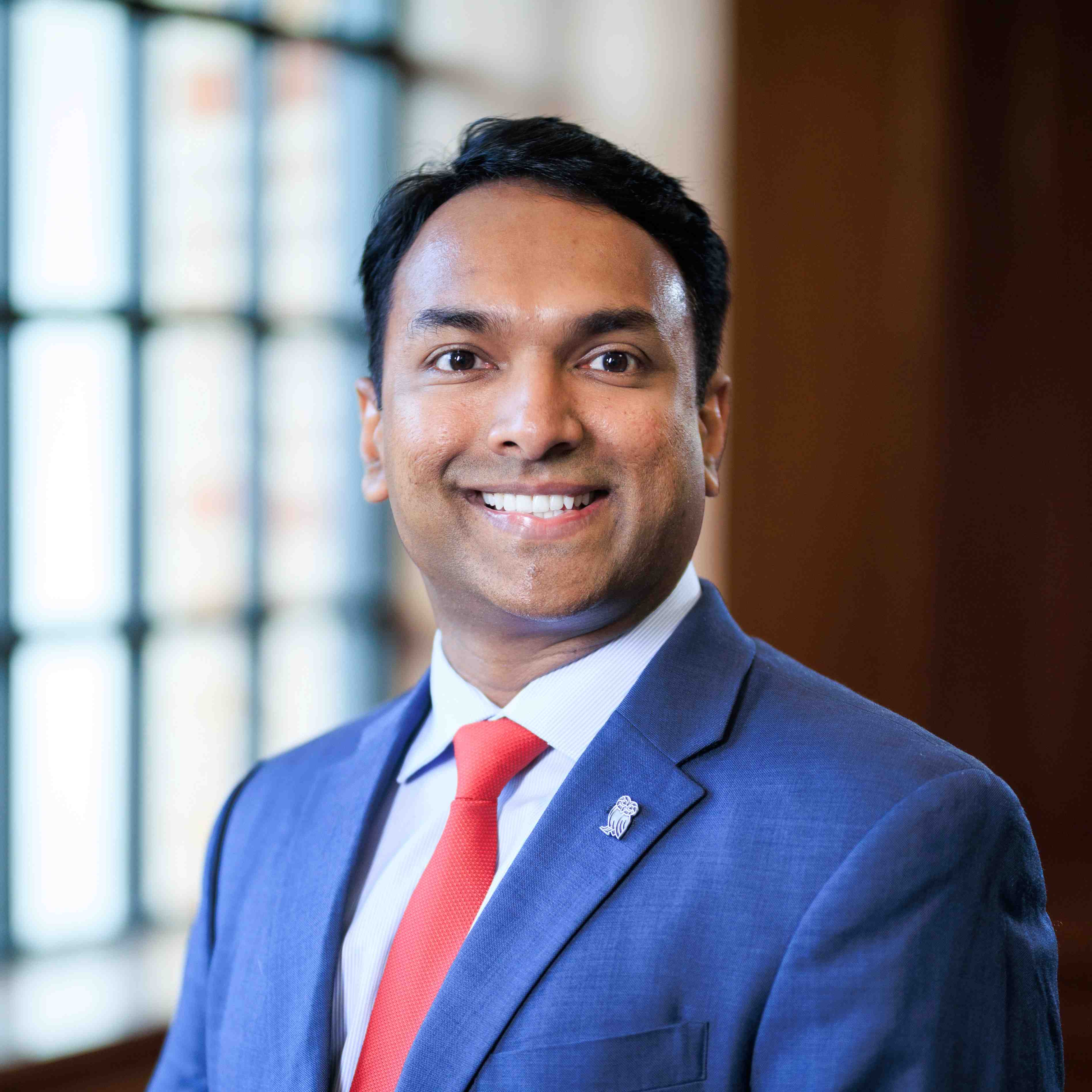
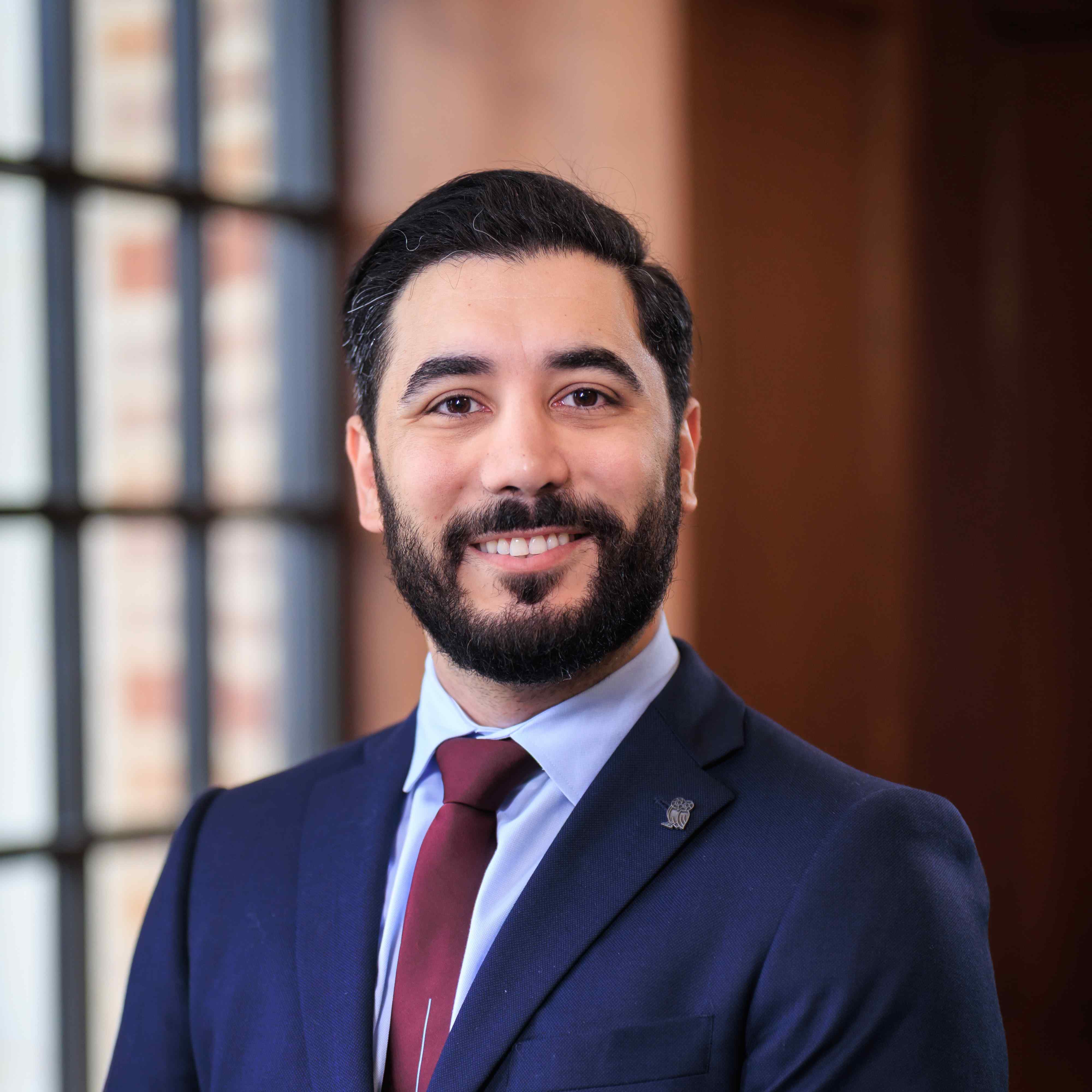
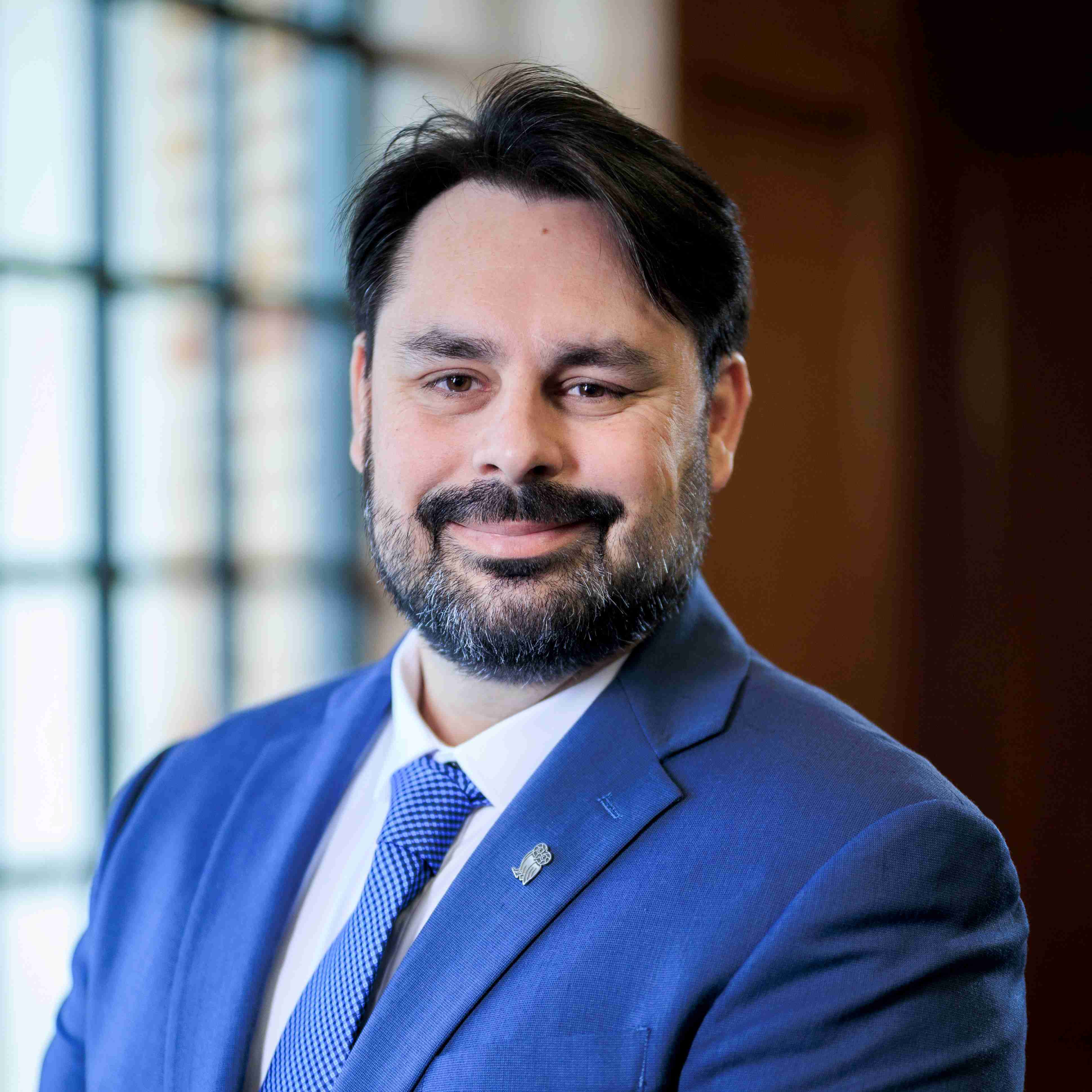
You May Also Like
Keep Exploring
From Community-Based Healthcare to the Rice Professional MBA: Meet Blair Walker
Blair Walker shares her story and why she chose Rice’s Professional Evening MBA program.

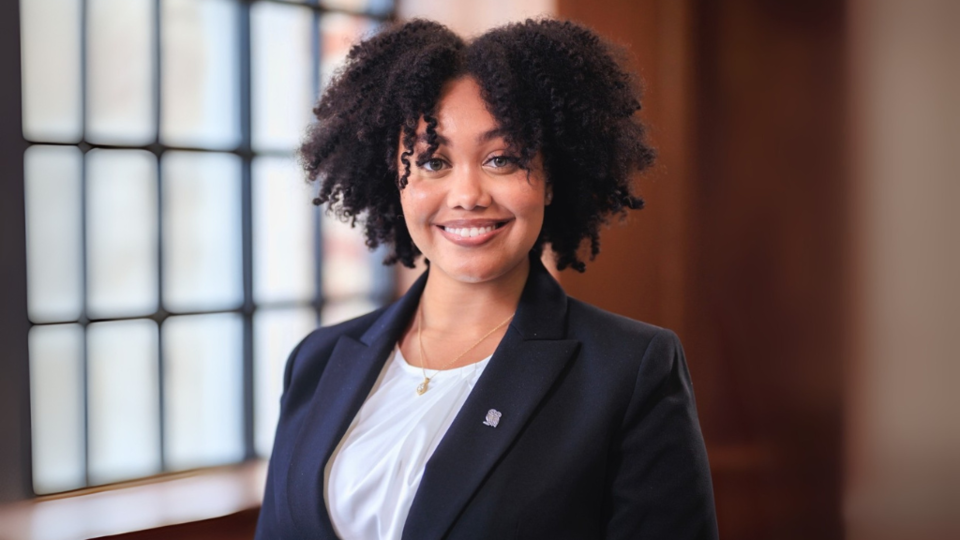
Blair Walker has built her career around enhancing experiences for others. Now, she’s taking the next step in her leadership journey as part of the Professional Evening MBA Class of 2027. We asked her to share a bit about her path and why Rice was the right fit.
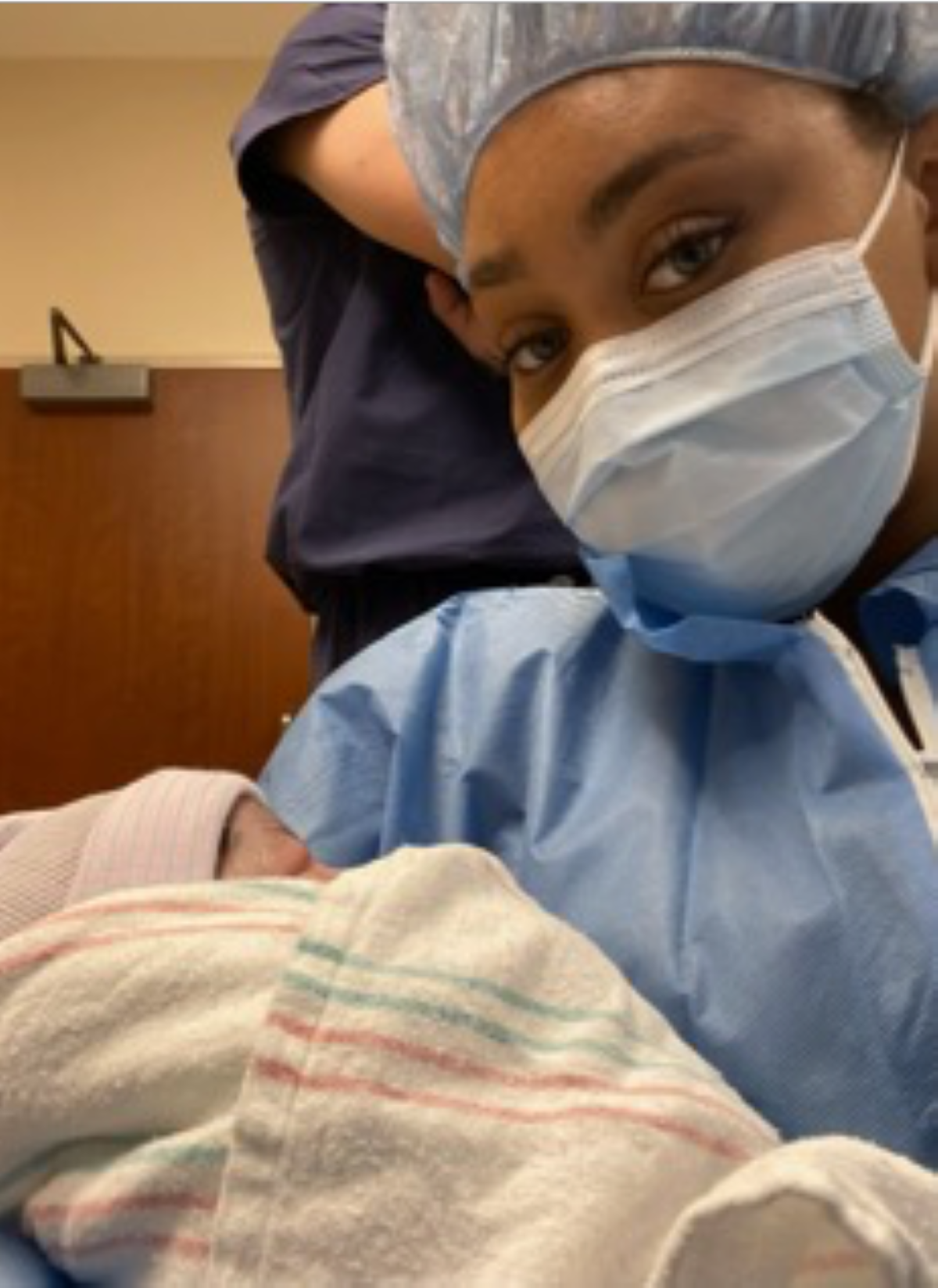
Tell us a little about your career and background.
I have experience in human resources in the healthcare industry, focusing on Human Resources Information System (HRIS) data management, onboarding, compliance and process optimization to enhance both employee and patient experiences. Alongside my career in HR, I am also a certified birth doula supporting families both in hospital settings and through community-based maternal health programs.
Education: Bachelor’s in organizational behavior and human resources
Most Recent Job Industry: Healthcare
Career Highlights and Industry Experience: In addition to my HR leadership experience, I have a strong background in maternal health advocacy and doula work, bringing a people-centered lens to organizational processes.
What is a fun fact about you?
I am a special FX makeup artist! I also have a passion for community service and love to volunteer with the Junior League of Houston.
Why did you choose Rice Business?
I am pursuing an MBA to expand my strategic and leadership capabilities, which will prepare me to transition into more high-impact roles in healthcare administration. Rice stood out to me for its strong reputation, collaborative culture and emphasis on practical application. These qualities will push me to grow both personally and professionally.
Why did you choose our Professional Evening MBA program?
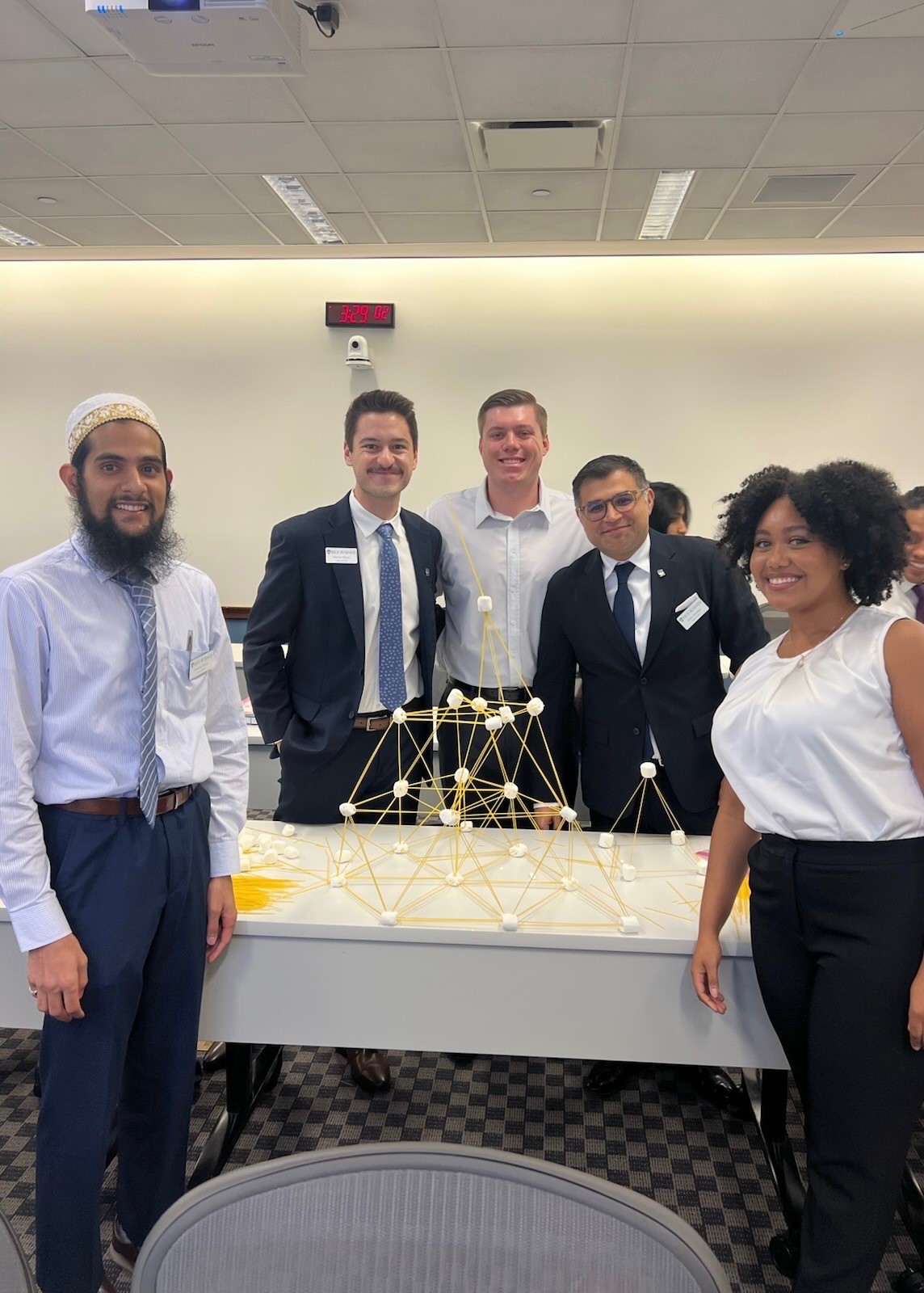
The Professional Evening MBA program fit best with my schedule, allowing me to maintain my career while applying what I learn in the classroom directly to my work the very next day.
How are you feeling about starting your MBA? What are you most looking forward to?
I’m energized by the opportunity to expand my knowledge and connect with peers who share a growth and development mindset. I’m looking forward to exchanging ideas, challenging myself and building relationships that will last far beyond graduation.
How was your experience during launch week? What were your first impressions of the program and your classmates?
Launch Week was both exciting and nerve-wracking, but I quickly realized I wasn’t alone. Everyone was feeling the same way. The experience confirmed that this program will stretch me in exactly the ways I need, and I left with a deep respect for those who have completed the journey — and for my classmates who have chosen to invest in themselves.
Blair Walker is a Professional Evening MBA student in the Class of 2027.
The Rice MBA
Companies Talk More Clearly When Business Is Booming
In years with strong performance, corporate disclosures are more helpful for stock price discovery — in bad news years, not so much.
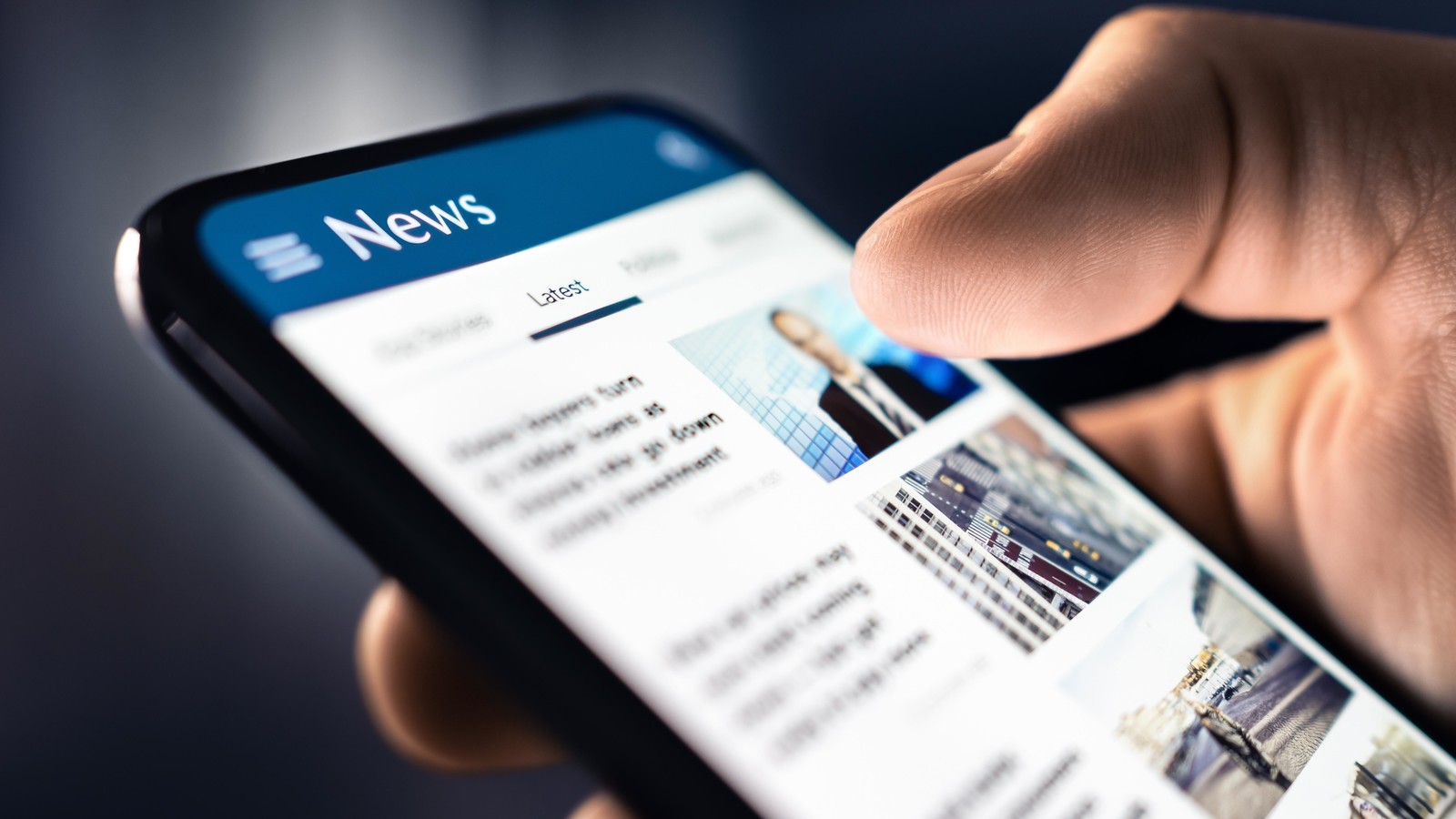
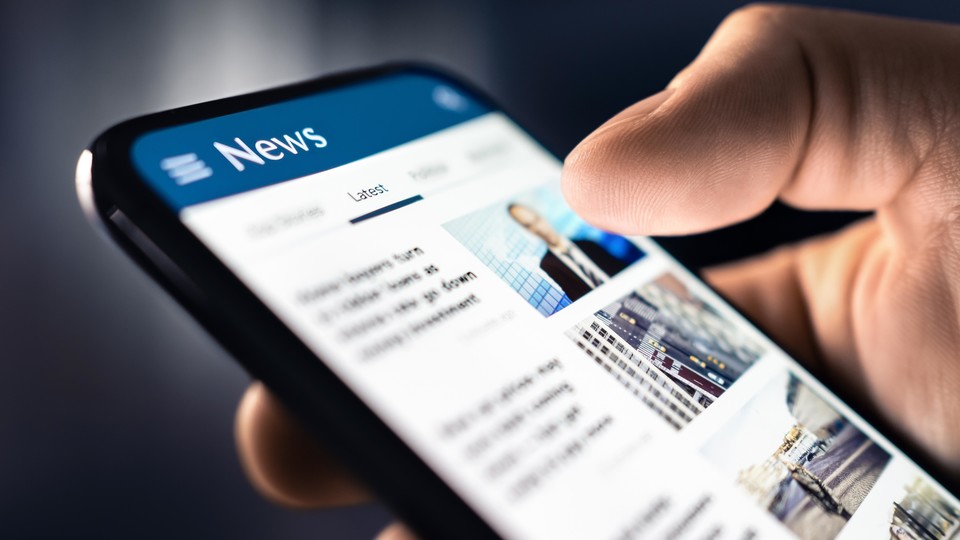
Based on research by K. Ramesh (Rice Business), Edward Li (Baruch College), Min Shen (George Mason University) and Joanna Wu (Rochester University)
Key findings:
- During good news years, corporate disclosures explain over 60% of stock price movement; during bad years, they explain only 40%.
- Firms issue about the same number of voluntary press releases in good and bad years, but during good years they account for 27% of annual price discovery; in bad years only 3%.
- While press releases lose influence during down times, SEC-required reports gain influence, increasing their share of price discovery from 7% to 17%.
Imagine you’re an investor reading a company’s Q2 earnings report. The numbers seem fine — not great, but not catastrophic.
Then you notice the firm’s recent messaging: an upbeat press release highlighting a modest partnership; a social media post touting “momentum”; a sudden insider share purchase. Taken together, it feels like the company might be elevating good news to soften the impact of a disappointing corporate disclosure.
Past studies have shown there’s something to this feeling — that managers sometimes try to hide bad news by releasing unrelated, positive announcements around the same time.
But new research in The Accounting Review looks beyond one-off announcements to examine how companies communicate over an entire year when their aggregate performance is strong versus when it’s weak.
Co-authored by Rice Business accounting professor K. Ramesh, the study also tracks a broader set of communications than past studies — from press releases to insider sales to SEC filings — and finds a clear pattern: In good news years, corporate disclosures play a bigger role in shaping stock prices than bad news years, when investors are more likely to rely on information they gather themselves.
When Tough Times Call for Good Headlines
Ramesh and his coauthors — Edward Xuejun Li (CUNY), Min Shen (George Mason) and Joanna Shuang Wu (Rochester) — likely provide the first evidence that in weak performance years, companies tend to release market-moving good news to offset an overall negative trend.
Using an updated version of a classic 1968 method by Ray Ball and Philip Brown, the researchers tracked various types of disclosures — including press releases, earnings announcements, and SEC filings — and measured how much each contributed to price discovery over the course of a year. (“Price discovery” is the market’s process of figuring out what a stock is really worth based on available information.)
In years when firms perform well, they found that corporate disclosures do what they’re supposed to: shape investor understanding, explain performance and guide stock pricing. But in years when performance is down, that same flow of information is just as frequent — but significantly less useful.
Specifically, they find that when news is good in the aggregate, public disclosures explain over 60% stock price variation. In bad news years, that rate drops to about 40%.
The disparity isn’t because firms are saying less, says Ramesh. But they do become more selective about what they disclose and when. As business performance deteriorates, disclosures can shift from simply informing to also shaping a more positive narrative.
This pattern shows up clearly in how managers use different channels for disclosure. In good news years, for example, voluntary press releases are a major source of information, contributing 27% to price discovery. In bad news years, however, their impact drops to just 3%. And while press releases lose influence during down times, annual and quarterly reports required by the SEC become more important, increasing their share of price discovery from 7% to 17%.
Measuring What’s Said — and What’s Not
The Accounting Review paper also looks at other signals investors turn to for guidance, especially when communication becomes more guarded.
For example, insider sales offered researchers another cue on news offsetting. In good years, insider purchases send a strong positive signal to the market — and in bad years, those same purchases can more than outweigh the negative impact of insider sales.
“Markets compensate for managerial silence,” says Ramesh. “When companies choose not to tell the whole story, investors find ways to piece it together.”
The most striking pattern wasn’t in what companies said — or left unsaid — but in how investors reacted. When managers grew more guarded, investors dug deeper. Using a measure called “extreme daily order flow imbalance,” which tracks periods of heavy one-sided trading, the researchers found that private information gathering played a far bigger role in bad years. These imbalances accounted for 11% of price discovery in those years, compared with almost no effect in good years.
In other words, when companies went quiet, investors got loud. “Markets compensate for managerial silence,” says Ramesh. “When companies choose not to tell the whole story, investors find ways to piece it together.”
Shifting the Lens on Corporate Disclosure
The research offers a nuanced analysis of the evolving interplay between corporate disclosures and the mechanisms of price discovery. Transparency isn’t just in what firms say, but in how their performance influences the messages they share.
For board members, analysts, investors and regulators, the message is clear: When a firm mixes in more than its fair share of good news during bad years, it may be signaling more than it’s saying outright.
Written by Scott Pett
Li, Ramesh, Shen, and Wu (2025). “Running without Moving? Corporate Disclosure and Annual Price Discovery in Bad versus Good Times,” The Accounting Review.
Never Miss A Story
You May Also Like
Keep Exploring
In the Wake of the Pandemic, Flexible Work Arrangements Made Workers Less Likely to Start Their Own Businesses
Flexibility has long been a selling point for entrepreneurship. But COVID-19 helped make flexible arrangements more of a norm. A new study co-authored by Rice Business professor Yael Hochberg shows how this shift in workplace norms changed who starts businesses.
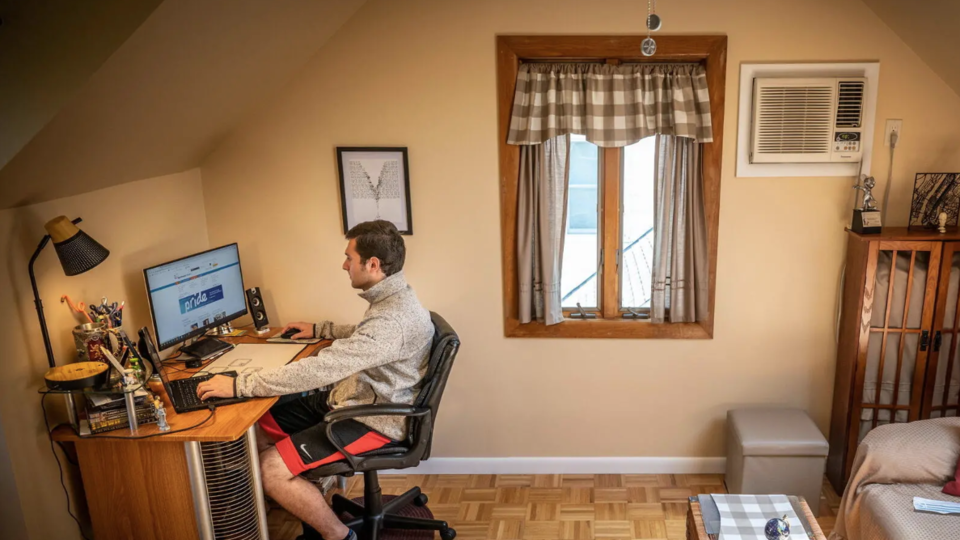
How Rice and Houston Are Shaping Tomorrow’s Founders
Houston’s startup scene is booming and Rice Business is dedicated to its success — helping emerging entrepreneurs turn bold ideas into real ventures.


Houston is famously the energy capital of the world and the home of NASA, but in recent decades it’s also become a hub for entrepreneurs and startups. At the heart of this momentum is Rice’s entrepreneurial ecosystem.
With its specialized curriculum and connections to resources like the Ion, the Liu Idea Lab for Innovation and Entrepreneurship, and the Rice Alliance for Technology and Entrepreneurship, Rice Business has created a hub for innovation, especially in early-stage ventures.
Whether you’re a current or future founder, or you just have an entrepreneurial way of thinking, Houston — and specifically Rice — is the best place for you to be.
Entrepreneurial Advantage
There’s a reason the Rice MBA has been ranked the No. 1 Graduate Entrepreneurship Program in the U.S. for six years in a row (Princeton Review and Entrepreneur magazine). Our students not only learn about entrepreneurship during their time in the program — they gain hands-on experience from a specialized curriculum that includes:
- Classes like New Enterprise, Entrepreneurial Strategy and Enterprise Acquisition provide actionable skills that prepare students to effectively launch and scale startups.
- Extracurriculars, internships, labs, capstone projects and student-led conferences that allow students to engage with Houston’s vibrant business community.
Global Startup Competitions
Rice Business is home to many pitch competitions and conferences, including the world’s largest and richest intercollegiate graduate student startup competition: the Rice Business Plan Competition (RBPC). With more than $1 million in cash and in-kind prizes awarded annually, the event draws top graduate students and entrepreneurial talent from across the globe.

The benefits of participating in RBPC extend well beyond funding: Students gain access to experienced mentors, build meaningful connections with industry leaders and present their ventures in front of some of the most prominent investors in the startup ecosystem.
In addition to the RBPC, Rice Business offers a variety of industry-specific events, like:
Interested in Rice Business?
Support Networks and Accelerators
Rice University is a proud supporter of Houston's thriving startup ecosystem. At the heart of this effort is the Ion, anchored in the Ion District, a 16-acre innovation hub developed by the university.
Located in Houston’s Midtown, the Ion fosters collaboration among startups, academics and established companies through its innovative spaces and programming. The Rice Alliance powers this programming, offering a variety of initiatives — from pitch days and investor introductions to intensive accelerators — that support transformative startups. The Ion also hosts events featuring senior leaders and technology experts, providing inspiration and impactful insights on pressing global challenges.
Rice Business is in the center of a world-class city booming in innovation and entrepreneurship. Choosing Rice was an essential step toward my professional objectives.
Brandon Johnson, FTMBA ’22

The Rice Alliance for Technology and Entrepreneurship supports startups and the commercialization of new technologies. Through accelerator programs, pitch events, and immersive experiences, it connects founders to essential networks and capital.
Rice Nexus acts as a gateway at the Ion, linking Rice-founded startups and research-driven ventures to industry leaders. It provides incubator spaces and specialized accelerators, like the Rice AI Venture Accelerator, to drive collaboration and create scalable technology ventures.
The Liu Idea Lab for Innovation and Entrepreneurship (Lilie) is the student hub for entrepreneurship at Rice. Lilie offers courses and programs such as the Change Maker Summit, Venture Development Workshops and the annual FIESTA event, equipping students with the skills and mindset to innovate and succeed.
MBA Clubs for Innovators
Through on-campus organizations, Rice MBA students can become active participants in a thriving entrepreneurial culture.
Our Entrepreneurship Association helps students connect with founders, investors and startup leaders through panels, pitch nights and speaker events. And for those interested in the investor side of entrepreneurship, the Private Equity & Venture Capital Association helps students understand the funding landscape — from early-stage investment strategies to deal evaluation and portfolio management. Club members engage with alumni in venture roles, participate in case competitions and explore the mechanics behind high-growth investments.
These organizations, along with Houston’s thriving innovation scene, give Rice MBA students a unique opportunity to apply what they learn in real time.
Houston: A Hot Spot for Innovation
Houston’s entrepreneurial ecosystem is vibrant and diverse, offering unique advantages:
- Diverse industry base. Beyond its reputation as the energy capital, Houston hosts thriving healthcare, technology and aerospace industries, making it ideal for interdisciplinary innovation.
- Cost-effective startup environment. Lower operational costs compared to coastal startup hubs mean your capital stretches further, allowing startups to scale faster.
- Strategic location. Its central U.S. location and well-connected airports make Houston perfect for logistics, manufacturing and global business initiatives.
Ready to Launch?
Whether you’re developing groundbreaking tech, planning to acquire an existing enterprise or aiming to build the next startup unicorn, Rice Business — and Houston — are ready to help turn your vision into reality.
Continue reading about how our Rice MBA builds an entrepreneurial mindset and why we are recognized consistently as the #1 Graduate Program for Entrepreneurship.
You May Also Like
Keep Exploring
Bringing Clarity to Women’s Healthcare feat. Monique Pourkarimi ’25
Season 5, Episode 14
Monique shares how her health journey inspired her startup, Dr. Clara, an idea born in a Rice MBA classroom.
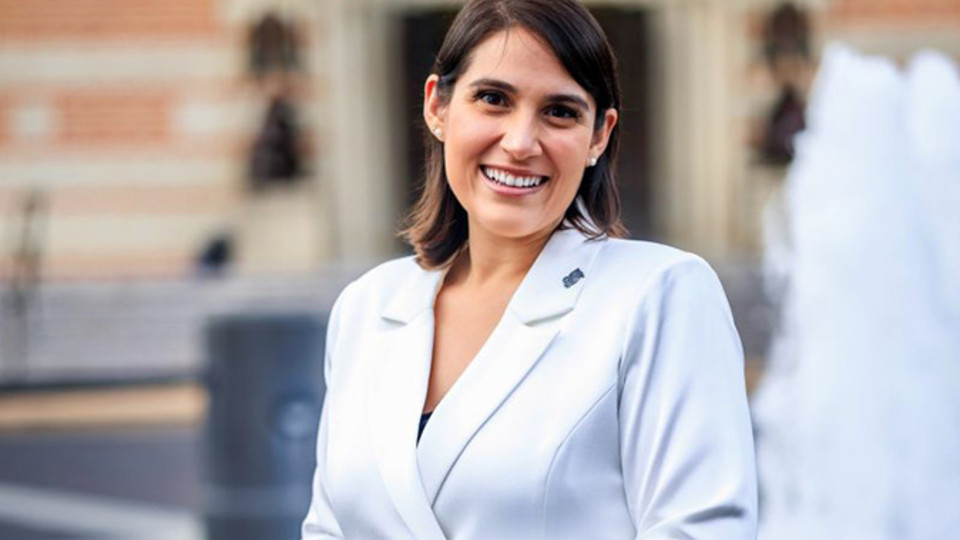
Owl Have You Know
Season 5, Episode 15
After navigating a challenging endometriosis diagnosis, multiple surgeries, and a complex healthcare system, Andria “Monique” Pourkarimi ’25 decided to tackle a gap she experienced firsthand. While pursuing an online MBA at Rice, an idea born in the classroom grew into Dr. Clara, LLC — a women’s health startup focused on closing the communication gap between patients and providers.
Just a year earlier, Monique founded Pourkarimi & Associates, LLC, a financial consulting and independent insurance brokerage firm that helps clients navigate complex financial decisions and insurance needs.
In this episode, Monique joins co-host Brian Jackson ’21 to share how her health journey inspires her work with Dr. Clara, why financial and insurance literacy are so important, and what led her career from the aisles of Costco to entrepreneurship and a Rice MBA.
Subscribe to Owl Have You Know on Apple Podcasts, Spotify, Youtube or wherever you find your favorite podcasts.
Episode Transcript
-
[00:00]Brian Jackson: Welcome to Owl Have You Know, a podcast from Rice Business. This episode is part of our Pivot series, where guests share stories of transformation in their lives and careers.
Andria Monique Pourkarimi, a member of the Online MBA Class of 2025, is a former retail manager who turned life-altering experiences into two purpose-driven ventures. She's the founder of Pourkarimi & Associates, a financial consulting and insurance agency, and the co-founder of Dr. Clara, a digital health startup, focused on improving care for women with endometriosis through AI-powered tools and patient-centered design.
In this episode, we dive into how Monique's personal health journey inspired her mission to drive change in women's healthcare, how she balanced building two businesses while earning her MBA, and why she believes lived experience is one of the most powerful tools a founder can have.
Monique, welcome to Owl Have You Know.
[01:03]Andria Monique Pourkarimi: Thank you so much, Brian. It's a true honor to be here, and I'm really excited to just have a discussion with you.
[01:09]Brian Jackson: Well, I am very much honored to have you. And, you know, you are famous amongst the community as being the Online student who was on campus the most. And I couldn't think of a quirkier way to say it, but what I've really loved about your experience with Rice is that, even though you were in the Online program, you found the opportunities to be on campus and to get involved. And I guess, really, where I want to start is, what's driving you to bridge that connection? And, you know, what benefit are you seeing?
[01:41]Andria Monique Pourkarimi: Yeah. Thank you, Brian. I think that that's a great way to segue into our conversation today, because as you were listing all of the things that I have been involved in, it, kind of, makes me proud to see all the accomplishments that I've been able to achieve. And I attribute a lot of it to Rice.
But it all started, right, two years ago. And at the time, yes, I was very new to starting my insurance business. The reason that I decided to pursue an MBA is because I was very passionate about helping educate individuals in terms of their health and their finances, especially growing up in South Texas, in McAllen, I realized not a lot of people talk about money, talk about health. And that's a priority, you know. At the end of the day, it's not just about the life that you spend working, it's, “How do I find a way to balance it and also live to its full purpose and potential?”
Now, pursuing my MBA, starting the journey, I was working in retail management for Costco — love Costco. Once I started the program, I knew that two years would fly by. And Rice is such a great school where you're able to utilize a lot of resources. And knowing that Rice has been ranked number one in entrepreneurship for the services that we offer, like Rice Alliance, Lilie Lab, competitions that we host through the Rice Business Plan Competitions, it's so many resources available, that I realized, “Wow, I want to make the most of these two years.”
So, I was very fortunate that I had a good relationship with my vice president and my general manager, that they gave me the opportunity to be on a student retention program, so, I didn't physically have to go to work. But I realized to myself I can use this time to be involved with a lot of organizations and be active on campus.
[03:47]Brian Jackson: And you're juggling a career, working with Costco Wholesale and also deciding, “Okay, I need to find the time to put in an MBA.” And I understand how an online MBA makes sense because your classes are in the evening. You can fit a normal work schedule in the day, and then in the evening be in class. And if you need to study or have the option to go to campus to study and get involved, you can squeeze it into your schedule.
[04:13]Andria Monique Pourkarimi: Exactly. Yeah, exactly. So, I loved the flexibility, 100%. I think, for me, that was the main reason that I'd pursued the Online MBA. But it's very true, what you say. A lot of people always saw me on campus. I would joke and say, “I'm not your traditional Online MBA student because I'm always at Rice.” But that's the beauty, too, right? You have the opportunity to put in what you would like. So, if you wanted to be involved, you had that ability to do so.
[04:41]Brian Jackson: Yeah. And I think, you know, so much of what we learned through the program, absolutely, is the coursework. But beyond it, it's like the knowledge you gain from your fellow classmates, it's the extended opportunities through any event that's being hosted, but also, even access to alumni. Like, that's all the education. And that's really the value of the program.
So, you're working at Costco. What's the light bulb moment where you're like, “Yes, Rice MBA,” all the stars have aligned, your management's saying you can do it? You know, what's putting you there? What's actually putting you in the seat?
[05:17]Andria Monique Pourkarimi: Yeah, that's a great question. I think, for me, I was just thinking, wow, there's so much potential that, now, especially with an MBA, there's so much potential that I have personally in growing my businesses. And, like, you said it, too, Brian. I think, just being connected with the other students, I joke, I feel like Rice did all of the background checks for us because I love my cohort. The people at Rice, the alumni, we're one big happy Owl family. And I had a lot of people that believed in me. And they were willing to help. They were willing to, kind of, point me in the right direction.
In December of 2024, I had the opportunity to take New Enterprise. And we were tasked with starting a new business. So, that's how Dr. Clara came about. But everyone was so helpful in terms of saying, “Wow, Monique, you're very passionate about this business. You should pursue it.”
And of course, Alanis and I were… we co-founded it together. So, we both graduated in May. And now, we're tackling it together. But we attended an event that the entrepreneurship association hosted. We had it there at the Lilie lab. And it was Boba, Bytes, and Business. So, it gave us an opportunity for us to connect with undergrads that were studying computer science.
And Alanis and I connected with one of the undergrads and also an Executive MBA, and they loved the idea. They were excited to help push that forward. And now, we're in the very beginning stages of product development and also working with my physician, too. So, it's just endless possibilities. And I think that that's, kind of, where that light bulb moment was, for me, that I could make this happen, especially with that support that was essential.
[07:23]Brian Jackson: Before even starting the program, you knew that there would be just, kind of, an opening of new possibilities. And I don't know, and I don't want to put words in your mouth, but it seems like you had always, kind of, had this entrepreneurial spirit. And this was the gateway to actually understanding, “How does that look? And how do I get there?”
[07:43]Andria Monique Pourkarimi: Yes. Yes, I think that that's great, the way you said it. I think entrepreneurship runs in my blood. So, my uncle has a logistics company that's here in the U.S. and transports in Mexico as well. My grandmother, she works with him in his business. And my mom has her own insurance brokerage as well, specializing in Medicare, so independent of my pursuits.
My grandmother and my mom are the ones who raised me. So, here, it was three generations of strong Mexican women who were, you know, just under one roof. And I think that's, kind of, what shaped me in terms of the woman that I am today and that entrepreneurial spirit.
[08:31]Brian Jackson: And I was going to ask you what's the “why” — the driver. And I think that, to me, almost just sums it up. It's the upbringing, it's watching it in real time, and seeing the effort. And yeah, I mean, that's a really great story, Monique. And what an inspiration to have!
[08:46]Andria Monique Pourkarimi: Yeah. Thank you. Thank you so much.
[08:48]Brian Jackson: So, what I really want to think about is Dr. Clara. What was the inspiration? And I know that you had a personal journey here that I think created this mission, like, purpose-driven mission.
[08:59]Andria Monique Pourkarimi: Yeah. So, for me, I was diagnosed with endometriosis back in 2021. And I've unfortunately had to already have three surgeries now since then, because with endometriosis, it doesn't just go away after surgery. It's something that can come back. And right now, a lot of research is still being done in terms of quicker diagnoses.
For me, the important critical thing was wanting to be heard and feeling validated because I did have to wait for surgery in order for that diagnosis. So, getting those scans, CT scans, MRIs, going to see multiple doctors, and getting back all negative results and thinking to myself, “Well, I'm not making up this pain,” and because I personally went through that, I, kind of, see myself as an advocate in terms of I'm not afraid to share what I'm thinking with the rest of the world. And I can put up with a lot, but there's going to be a lot of women out there that suffer in silence. And I think, with Dr. Clara, it was an opportunity, or it is an opportunity, for us to help a lot of women out there. It's like they say, purpose to pain, right? I think that's, kind of, what started all of that, purpose through pain.
[10:26]Brian Jackson: Well, thank you for sharing. And I think you found such a pain point and that this access to information, the ability to actually have these productive conversations with healthcare just sometimes don't work. And you happen to be in the largest medical center in the world.
[10:45]Andria Monique Pourkarimi: Yes.
[10:46]Brian Jackson: And if you're finding these challenges across markets, we have to think that those challenges exist there, too, right, when we think of rural medical providers. And it's absolutely an opportunity to help.
[11:00]Andria Monique Pourkarimi: Yes, 100%. I love as well that I am based out of Houston, that, with Rice, we have that opportunity for us to leverage, utilize our network. There's something to be said about the fact that, Brian, we got our MBA at Rice, right? There's a reputation that comes with that, because it's an intense program. And I'm very proud of us.
[11:23]Brian Jackson: So, a little more on Dr. Clara. What inspired the name?
[11:27]Andria Monique Pourkarimi: Oh, yeah, I love that question. So, of course, in New Enterprise, you're creating a whole business right from scratch. And I was like, marketing is my background, you know. I love marketing, creativity. All of that is, kind of, my thing. So, our slogan is, “Dr. Clara bringing Clara-ty to your endometriosis journey.” And, of course, I mean, right now, we're focusing on endometriosis, but down the line, we would like to be able to offer more services for those suffering PCOS or even just additional help for reproductive journey, if you're having to seek IVF treatments, et cetera.
[12:12]Brian Jackson: I like that “Clara-ty.” I think it's catchy.
[12:15]Andria Monique Pourkarimi: Yeah.
[11:16]Brian Jackson: Pardon the ignorance, but endometriosis, if you could, kind of, tell me, like, how many women are impacted by it, and what are, kind of, the common issues in the healthcare world right now around it.
[12:31]Andria Monique Pourkarimi: Yeah, so, great question. The, kind of, definition of endometriosis is excess bleeding during menstrual cycles. But there's other symptoms, right, that we encounter. Ultimately, what the illness is, it affects your daily life. So, if you are having to call out of work a lot because of your pain, you're having to cancel plans because you're bedridden.
My mother also has suffered through it. She had stage four of it — had to have a hysterectomy. She would pass out because the pain was so bad. Some women, also, that I've interviewed were sharing their experiences with me and just talking about how they'd have to be in bed for days at a time because of the pain.
And it's just so unfortunate, you know. You're trying to live your life. You're wanting to go hang out with friends or even wanting to just work, and you can't. And so, imagine having to navigate that with an employer, you know. I think that, to me, is like, “Oh, she's calling out again,” or, “Is she really… like, what's the level of pain that they're having for it to be that bad?”
So, I think that's why, for me, the community aspect of it for women was so important. But again, I think I mentioned that, with endometriosis, it's only diagnosed through surgery. So, there's so many women that go undiagnosed. And especially, if you're having limited access to care, you're, kind of, just suffering in silence.
I'm in discussions right now because I recently had to have another laparoscopic surgery. What a way to celebrate my graduation. But I felt like I'm the guinea pig, because while I was going through the process of recovery, here I was, trying to document some of, like, the medications that I was taking, having to document if I was still experiencing certain sharp pains, what would've helped me, certain foods, you know. It would've been nice if I had access to all of those resources already. Or even if I would have been able to document it and just give that to my doctor, my provider, I think all of that would be helpful.
But because of this, I've been working also with my specialist. And so, Dr. Clara, we're hoping that that becomes something that's post-diagnosis. Now, my specialist is wanting to create something that would help with pre-diagnosis. So, we're hoping that… you know, we're working through that partnership. But if we could offer something that's all-encompassing of pre-diagnosis and post-diagnosis, that would be something that impacts the lives of so many women around the world.
[15:31]Brian Jackson: So, as it's now, it's post-diagnosis; when it rolls out, it'll be a place to take notes to share them with your care provider and to help, like, actually, you know, the identification recovery. Is that, kind of, the pathway of it?
[15:48]Andria Monique Pourkarimi: Yes. Yes, definitely. Like I said, endometriosis, it doesn't necessarily just go away. I'm hoping, yes, I saw my specialist, this was his first time operating on me. I hope he got it all and I don't have to worry about this again. But again, it could come back. And if so, then it would be great if I had some tool that would help me through this process. My co-founder, Alanis, likes to call me the guinea pig. And that's okay. I'm happy to be the guinea pig so we can make sure that it rolls out smoothly and it’s something that can help the lives of so many women.
[16:21]Brian Jackson: So, what's the timeline to roll out? When are we expecting the grand reveal?
[16:26]Andria Monique Pourkarimi: Yeah, so exciting. Okay. Well, we actually were in talks with our app developer, product developer, yesterday. So, we've established weekly meetings to just start working on the app. So, we have our customer journey map that's ready. And we have a set deadline to have an app ready to present, actually, to the Rice Business Plan Competition in April of next year. So, hopefully, within the next six months, we have an app that I can show you, Brian.
[17:00]Brian Jackson: I’m adding it to my calendar now [crosstalk 17:03].
[17:04]Andria Monique Pourkarimi: Call me up in six months.
[17:07]Brian Jackson: Yeah, I'm very excited. Wow. Awesome.
[17:09]Andria Monique Pourkarimi: Thank you.
[17:09]Brian Jackson: So, a lot to be updated on in the next six months. Very good. I want to pivot a little and just talk about, clearly, you were involved at Rice and you received the M.A. Wright Award, the Owl Award, and you were named Poets & Quants Best and Brightest. After the experience, looking back, what does that all mean to you, as you reflect on Rice?
[17:31]Andria Monique Pourkarimi: I'm just so grateful, you know. I don't want to get emotional. But you mentioned earlier that, being at Rice, it opened up so many doors. And I knew that it would. I knew that a lot of doors would open, but I didn't realize, to the extent, right? And when I first started the program, as always, we all ask advice, you know, from former alum, “What's your advice to me?” And I'll always remember, they said, “The academics, it's important. You're going to learn it. It's there. That's to be expected with an MBA. But at the end of the day, it's going to be the people that you meet that's going to change your life.”
And I couldn't agree more. I think a lot of it was the people that I met, my cohort, my fellow students, but also the faculty. I think they're just so willing to help. They want to see you succeed. Yeah, I was on campus a lot because I also really enjoyed… I was in that APSE Office all the time, bothering Danielle. I say bothering, but she always had her door open for me, and I'm so grateful for that. And I know that that wouldn't be possible if we didn't have the support that we do now, you know.
When I was receiving my M.A. Wright Award at our banquet, I just said, you know, “I feel like this award belongs to all of you, to all of the students.” I wouldn't be receiving it if it weren't for them. I saw living in Houston as, kind of, a responsibility because we had students that were attending class from all over the world, right? So, imagine having to chime in to class at 3:00 AM their time and then wake up three hours later to go to work, you know. So, I just realized, you know what? There's so many opportunities on campus that I know about. But what about my fellow classmates? I would love to be able to learn about it. I saw it as a responsibility to be the boots on the ground and share those resources with everybody else. So, I think it goes back to me wanting to help educate others. And I couldn't be more happy to do so.
[19:48]Brian Jackson: Yeah, I think it's great. All I could picture when you were receiving your M.A. Wright Award is that Mean Girls scene where she takes the crown and breaks it and gives it to everybody.
[19:58]Andria Monique Pourkarimi: I wasn't given a crown so I couldn't break it, but I love that.
[20:04]Brian Jackson: But it's very true. It's the classmates. And I do agree. Like, Online program, I had a classmate who was living in Hawaii, and, you know, I was in Boston. And, you know, we did have folks that were in Houston and having that connection, and the physicality and being on campus is important and it's a representation.
So, okay, Pourkarimi & Associates, what was the moment where you saw, “This is a business I want to start, this is a product I understand, and I have the ability to help people manage through the complicated nature of insurance and, kind of, money and the topics we don't talk about?”
[20:43]Andria Monique Pourkarimi: So, again, I grew up with my mom as my role model. And she has her own insurance brokerage, so she specializes in Medicare. For me, because I was working for Costco at the time when I realized, you know what? I do want to dive deep into the health insurance industry, I think, because of what I was experiencing as well, I realized that, working for Costco, I had excellent health insurance. There were great resources available to me, but not a lot of my coworkers knew about it. And I was that person, “Hey, guys, you need to sign up for this. Why aren't you leveraging your flexible spending account? Why aren't you getting stock options? Costco's matching X, Y, Z, you know. You need to do that.”
I realized, wow, you know what? There's so many people in America that don't know about the benefits that are available to them. And I could be that person that helps educate them. I started working on a little draft as well for a book for kids to educate them about money as well. So, it's something that needs to start at a very early age, you know. And it shouldn't be something scary. It should be something fun, you know, about saving money, and how can I invest that money?
[22:09]Brian Jackson: Yeah. I mean, the story of compound interest and the Rule of, what is it, 72? And those were things I don't think I learned about until I got on the phone with one of my uncles. And he explained it to me. And all of a sudden, my eyes opened and I was like, “Well, I've lost the peak earning years. At 18, I should have been saving.”
[22:28]Andria Monique Pourkarimi: Yes, yes.
[22:29]Brian Jackson: Because the dollars then work way harder than the dollars I save today. And that is, unfortunately, a lesson you only learn with time, and by then it feels too late.
[22:40]Andria Monique Pourkarimi: Yeah. It's never too late. So, that's the good thing. But yes, if we're able to just start talking about it at such an early age, you know, I think that it will help make positive change. I love it because I am the oldest. I do have two younger sisters and two younger brothers. My sister, the baby, she is 20 years old and she lives with me in Houston. But I love it because she's saving, you know, and she plans to buy a home in two years. And I know that she can get there. But I love it that we're having those conversations. I love that my mom raised me. I think she did a great job raising me. But I think that it's so important to have those conversations with young adults.
And because I am 34, she's 20 years old, I can share my experiences with her and everything that I've learned and maybe how things that I would've done differently. So, I think that, if we take advantage of, also, relationships that we have with those who are older and wiser, we could learn so much.
[23:48]Brian Jackson: I feel like, every time I look at my finances and try to think about retirement, there's always more that I'm like, “I wish I, you know, knew a little more about this.”
[23:58]Andria Monique Pourkarimi: Yeah.
[24:00]Brian Jackson: You know, we do get to an age, too, where it's like, you might be missing something. And it's possible. There's so many levers and opportunities that are out there. And you were talking about company benefits that we're probably just not thinking about and not taking advantage of because you onboard a new job, they give you a big packet, you check-mark a couple of things, send it off to HR, and you, kind of, forget.
[24:24]Andria Monique Pourkarimi: Yeah, yeah, exactly.
[24:25]Brian Jackson: Life goes on. Between, you know, dogs, cats, houses, and all the other things that we're managing in life, you know.
[24:32]Andria Monique Pourkarimi: Yeah. MBAs, you know.
[24:35]Brian Jackson: Yeah. Small things like an MBA and, you know, trying to be a good person. All the stuff we think about. So, okay, next is a possibility of exploring a Ph.D., JD in public policy. You know, what systemic issues are you hoping to change, and why?
[24:52]Andria Monique Pourkarimi: Yeah, that's a great question. So, my undergrad was in political science. So, government policy, legal studies. For me, I've always been very interested in the ways that we could leverage government. And because of my background in health insurance, helping my policyholders file claims that get rejected. Not to go into too many specifics, right, but having to help a cancer patient get an MRI and having it rejected by an insurance carrier is so disheartening, you know.
At the end of the day, healthcare, it’s important for us in terms of our lives, you know. You only get one life. So, for me, diving into public policy, just seeing, kind of, the way our healthcare system is now and also personal experiences that I had to face, I think I had to wait about six months just to get an MRI. And that was because I had to go back and forth with insurance.
So, again, because of that experience, because of the physical pain that I was going through, thank God I understood the process, you know. Imagine millions of Americans out there that don't even know. Like, they get a rejection and then they're like, “Okay. Well, that's done. Now, I can't get my MRI.” No, sir. I know what I need to do. I need to go back and have my doctor file again, you know. Was there a code that was not on… You know, I think that there's change that needs to be done.
I joke, I say, “I must really love school.” No, but I think there's change that can happen, but you have to put yourself in those positions. And being at Rice was that perfect opportunity, being right there in the medical center, you know. I think that's why that transition into healthcare was… it's possible.
[26:51]Brian Jackson: No, absolutely. And I think it seems like sometimes the system is there to protect against fraud, and all these codes are required to do so and ensure that, you know, overtreatment. But it gets to a point where, I don't know, I always think of the scales and, like, what are we balancing here?
[27:09]Andria Monique Pourkarimi: Yeah.
[27:09]Brian Jackson: I guess, you know, when you were in your career at Costco, then when you went to your MBA at Rice, to now, I'm sure the definition of success has evolved a bit. And I would love to know if you could, kind of, summarize that evolution, and what is success meaning to you now?
[27:25]Andria Monique Pourkarimi: Yeah. I think, for me, success is counting, how many people am I able to help at the end of the day, right? And it's not a number of just benchmarks of, “Oh, okay, I have a quota of helping 500,000 people.” No, it's not about that. At the end of the day, do I confidently know that I've been able to help make a positive impact in this world?
I think success is, what is my legacy? And if I were to die today, you know, what would people think about me? Did I make a positive impact in people's life? That, to me, is success.
[28:02]Brian Jackson: It's exactly the type of success that, I think, truly matters. And I think it takes a special journey to get there, to understand that that's what it's all about, right? Is the impact we have on others and the good that we do. So, yeah, a perfect answer.
[28:19]Andria Monique Pourkarimi: Yeah.
[28:19]Brian Jackson: You could have said money, and I would've said that's fine (laughter).
[28:24]Andria Monique Pourkarimi: I mean, yes, who doesn't want money? You need money to make change in this world, you know. Money is important. And I do want a return on investment on my education.
[28:37]Brian Jackson: It's a part of it always, yeah.
[28:39]Andria Monique Pourkarimi: Yeah, yeah, exactly. I did want to add. So, you, kind of, mentioned how there's two businesses that I'm working on right now. And it's a lot, right? Like, a lot of people say that whenever you're working on something, you know, you want to give 100% to whatever you're doing. I think pursuing an MBA teaches you a lot about time management, also, you know.
[29:04]Brian Jackson: Yeah.
[29:04]Andria Monique Pourkarimi: I was involved in so many things. And I truly believed that time management was important. I realized that it's not just about saying “yes” to everything, but it's also about empowering other people to help you. So, that may have been something that I did struggle with in the past, but I realized very quickly through the MBA, you know what? If I have a project that needs to get done, or if we're trying to prepare for a conference, if I don't have something done, well then I can ask for help. So, same thing with the business. If I know that I'm needing help with something, I have that capability of being able to go and lean on someone and help make it happen.
[29:51]Brian Jackson: No, it's a great point. I feel like time management, it's almost that realization that it's okay to say, “Hey, I've hit my limit,” and to then ask for help. It's not a weakness to say, “I don't have the bandwidth right now. And I can't do this as well as I normally could.” And being under the gun with a full-time job and doing an MBA and then also trying to be involved will teach you that very quickly.
[30:19]Andria Monique Pourkarimi: Yeah, exactly.
[30:20]Brian Jackson: Monique, thank you so much for being here and for sharing your story so openly. You've shown how lived experience, education, and purpose can come together to create real impact. And we can't wait to see what's next for you. Thank you.
[30:36]Andria Monique Pourkarimi: Thank you, Brian.
[30:39]Brian Jackson: Thanks for listening. This has been Owl Have You Know, a production of Rice Business. You can find more information about our guests, hosts, and announcements on our website, business.rice.edu. Please, subscribe and leave a rating wherever you find your favorite podcasts. We'd love to hear what you think. The hosts of Owl Have You Know are myself, Brian Jackson, and Maya Pomroy.
You May Also Like
From Classroom to Big Four: How to Prepare for Public Accounting Recruitment
Learn how students are cracking the Big Four code in Public Accounting recruiting.


If you are interested in accounting, you have likely heard of the Big Four: Deloitte, EY, KPMG, and PwC. These four firms, along with other respected multinational firms, offer exceptional training, client exposure, global reach, and long-term career opportunities. Because of their prestige, earning a position at one of these firms is highly competitive.
Whether you are beginning your undergraduate studies or preparing to enter a graduate accounting program, these steps will help you stand out and capture recruiters’ attention.
Excel Academically
Strong performance in your undergraduate accounting courses is essential. Grades in business-related and quantitative courses also matter. Keep working to raise your GPA, and choose electives that build complementary skills, such as data analytics or finance.
Understand What Firms Look For
Recruiters consistently value:
- Technical proficiency: Solid understanding of GAAP, audit standards, and tax regulations
- Strong interpersonal and communication skills
- Teamwork and leadership potential
- Work ethic and time management
- Adaptability and willingness to learn
Each firm has its own culture, but all seek adaptable, motivated professionals with these qualities.
Start Early: Recruitment Timelines
Recruiting begins early in the academic year. To prepare for internship and full-time recruiting, update your resume and LinkedIn profile before events begin.
Resume tips:
- Highlight technical skills such as Excel or Power BI proficiency
- Quantify achievements (e.g., “Analyzed financial statements for four mid-sized clients”)
- Keep it to one page with consistent formatting
- Eliminate typos and grammatical errors
LinkedIn tips:
- Use a professional headshot
- Follow firms and recruiters you meet
- Showcase relevant coursework, certifications, and internships
- Keep work experience current
In person, be punctual, prepared, and professional. Learn the dress code in advance. Develop a 30-second “elevator pitch” that introduces who you are, your academic background, your interest in the firm, and why you are a strong fit. Write it out and rehearse until it feels natural.
Master the Behavioral Interview
Public accounting interviews often focus on behavioral questions. Use the STAR method (Situation, Task, Action, Result) to structure your responses. Expect to be asked about leadership, teamwork, challenges, deadlines, and your alignment with the firm’s values.
Examples include:
- “Tell me about a time you handled a challenging group project.”
- “Describe a situation where you had to meet a tight deadline.”
- “Why do you want to work for [Firm Name]?”
Be ready to discuss all items on your resume and think through hypothetical problem-solving scenarios. Practice through mock interviews with career services or peers.
Network Strategically
Firms prefer to hire candidates they already know. Attend on-campus presentations and coffee chats with firm representatives. Follow up with a personalized LinkedIn message or thank-you email.
Gain Internship or Part-Time Experience
If you do not yet have an internship, pursue one with a local accounting firm or business. Experience that demonstrates the following is highly valued:
- Application of accounting concepts
- Client-facing responsibilities
- Professional work environment experience
If you cannot secure an internship, even a summer job such as waiting tables can highlight your work ethic and ability to collaborate.
Plan for the CPA Exam
Even early in your studies, show commitment to earning the CPA license by:
- Expressing your intent to sit for the exam
- Understanding your state’s eligibility requirements
- Completing coursework aligned with exam content
Many firms offer bonuses and promotions for CPA completion, so demonstrating a plan strengthens your candidacy.
How the Rice MAcc Supports Your Career Goals
The Rice Master of Accounting program has strong connections with the Big Four and other major firms. Before classes begin, you will receive guidance on preparing for recruitment.
During the program, you will participate in workshops on interviewing and professional etiquette, as well as career-focused events such as Meet the Firms and the Big Four Panel. Faculty will help you master technical concepts, refine your communication, and strengthen your critical thinking skills.
In just ten months, the program’s small class size and collaborative environment will help you develop confidence and expertise quickly. No matter your undergraduate major, the Rice MAcc is a transformative step toward a rewarding career in accounting.
Interested in Learning More?
Explore the Rice MAcc admissions guide and take the next steps to jumpstart your career!
Interested in Rice Business?
Does an accounting-based career sound like it’s for you? Contact us at ricemacc@rice.edu! We would love to share more information with you about the benefits of pursuing a graduate accounting degree at Rice.
Keep Exploring
Define Body & Mind founder to build wellness-focused apartment community in Energy Corridor
Houston–based wellness-focused developer Define Living, founded by Rice MBA Henry Richardson, is launching a mid-rise, 388-unit apartment community—Define Living: Park Row—on a 10.4-acre site in the Energy Corridor’s Central Park master-planned development.

‘Forever grateful’ Rice alumnus steps in line for top chair with Houston Livestock Show and Rodeo
Wesley Sinor ’97, who graduated with a master’s degree from the Jones Graduate School of Business, has been selected to steer the upcoming Houston Livestock Show and Rodeo.

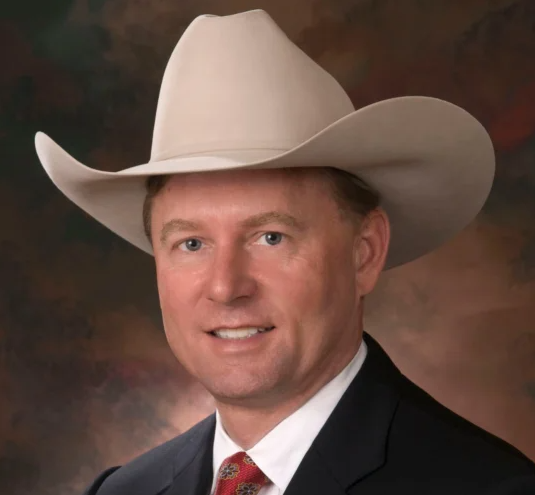
The Houston Livestock Show and Rodeo, a staple of the Texas experience, is also one of the state’s largest fundraisers of the year for education. Rodeo Houston has presented more than 22,000 scholarships valued at more than $305 million since 1932.
The person flagged to steer the upcoming rodeo is Rice alumnus Wesley Sinor ’97, who graduated with a master’s degree from the Jones School of Business.
“Earning my MBA at Rice influenced the trajectory of my future in immeasurable ways,” Sinor said. “It provided an esteemed business education, which I use daily in my personal, professional and philanthropic roles, and offered mentorship that has guided me as an evolving leader, especially throughout my time as a rodeo volunteer, executive committee member and now as chairman-elect.
“I’m forever grateful for the knowledge and guidance my academic experience at Rice continues to provide me.”
Sinor has been a volunteer at the rodeo for 22 years and served on several of the event’s 109 committees. He started on the gatekeepers committee in 2003 and served on several others, including the feed store, Houston General Go Texan, livestock, rodeo operations, grand entry and quarter horse committees.
He also served as a vice president from 2014-16 and was elected to the rodeo’s executive committee in spring 2017. On the executive committee, he chaired both the audit and budget standing committees.
Sinor said working with the rodeo provided a touchstone that holds immense value to him and the community.
“A big reason I got involved as a rodeo volunteer was to be part of something bigger than myself, something that made an impact in ways I truly believed in,” he said. “Not only does the event mean so much to the city of Houston, but it also brings millions of people together in a way you won’t find anywhere else in the world. The work we do as volunteers is meaningful because it directly impacts the youth of Texas through scholarships and memories that can’t be quantified. Beyond that, the dedication to sustaining the culture of rodeo speaks for itself, from offering a top-tier hospitality experience for athletes to hosting fierce arena competition with the largest payout in a regular-season rodeo. Being a catalyst for bridging urban life, Western heritage and agriculture was already a rhythm I lived by, so getting involved just felt like the perfect fit.”
You May Also Like

Rice University’s Jesse H. Jones Graduate School of Business today announced the launch of its Graduate Certificate in Healthcare Management program, a 10-month, credit-bearing professional credential designed for current and aspiring leaders seeking deep expertise in the business of healthcare.
What Do MBA Interns Actually Do? These Rice Students Break It Down
Wondering what summer looks like as an MBA intern? Rice Business MBAs share their experiences with leading companies like Microsoft, JP Morgan Chase and Campbell’s Company.

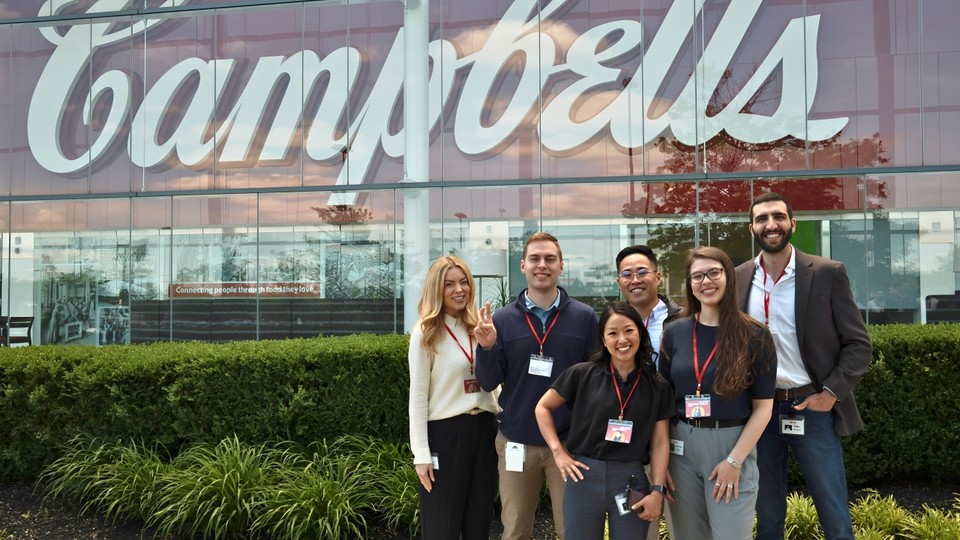
What’s one of the best ways MBA students can explore new industries and apply classroom concepts to real-world business problems? Summer internships. At Rice Business, nearly all Full-Time MBA students do a summer internship, and return the next semester with fresh insights and a stronger network. The best part? Most of these opportunities are fostered through the Rice Business community.
We caught up with five Full-Time MBA students from the Class of 2026 to learn how these roles are helping them grow as leaders.
Isamar Lopez-Veracruz

Internship Company: JP Morgan Chase
Internship Department: Corporate challenge product team, Customer acquisition marketing platforms
Internship Location: Plano, TX
Isamar Lopez-Veracruz entered Rice Business looking for a career pivot, and she took advantage of MBA networking opportunities to secure a summer internship with JP Morgan Chase. Through the company’s rotational program, she was placed with the product tech team, where she documented project workflows and collaborated with stakeholders to develop a go/no-go strategy for a new global lead acquisition feature.
When diving into recruitment, Lopez-Veracruz encourages prospective MBAs to keep an open mind. “I didn’t think I’d be considered for JP Morgan Chase because of my non-traditional background, but they were genuinely interested in fresh perspectives and people who are eager to learn,” she says.
Continue reading about her experience here.
Jason Liu
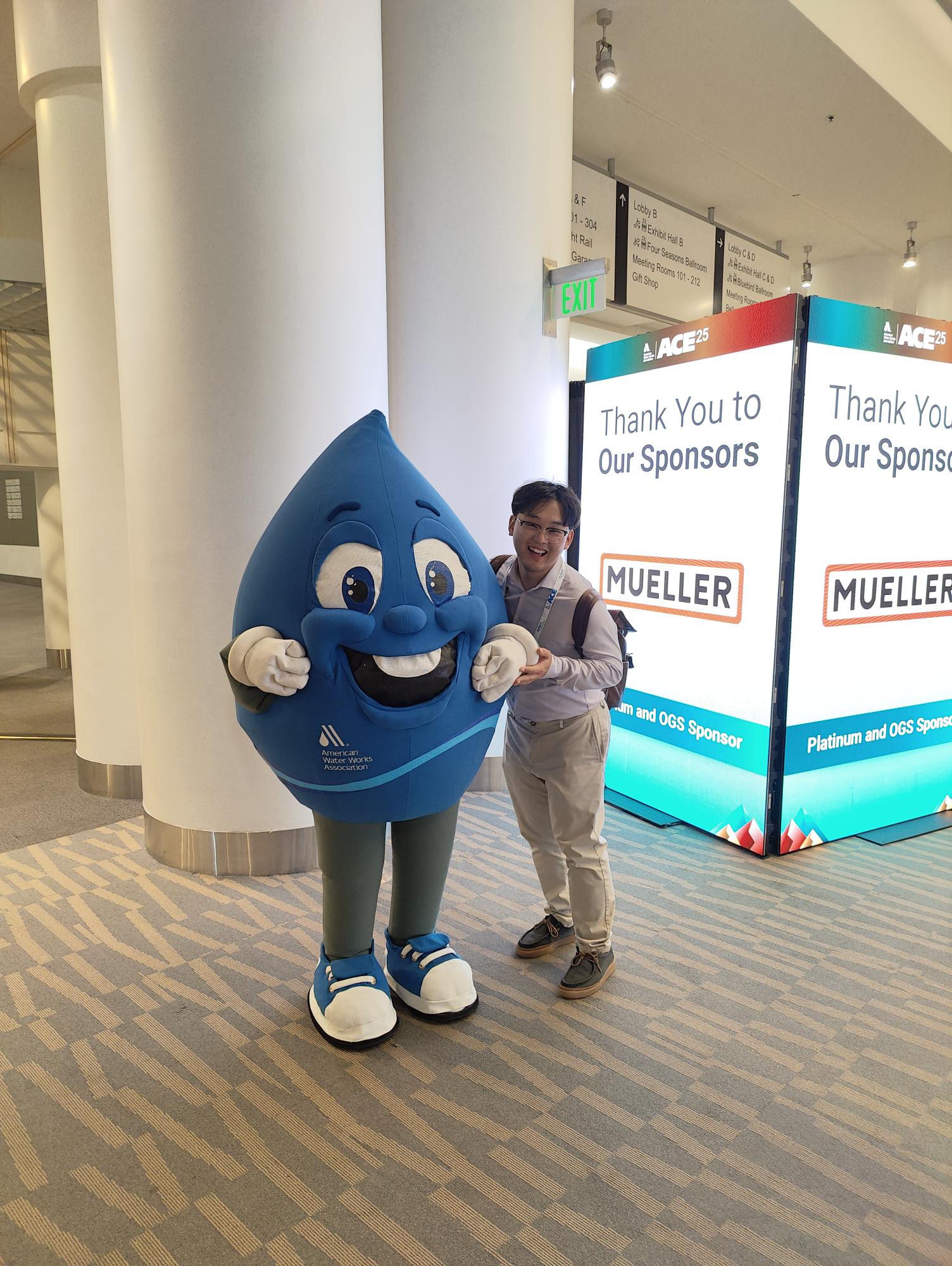
Internship Company: Coflux Purification
Internship Department: Strategy and business development
Internship Location: Houston, TX
Jason Liu used a home-field advantage to secure his summer internship. After connecting with Coflux Purification co-founder Dana Vazquez and fellow team members at Rice Business, Liu knew that this was the perfect opportunity to see strategy in action at an early-stage startup.
Bringing in his experience as a consultant at Deloitte, Liu’s internship focused on financial modelling and budgeting, as well as market potential assessment, to help the team establish projections and target high-priority customers. Liu’s favorite part of the internship? “Hands down: the open, trusting environment and the people,” he says.
Read more about Liu's internship with Coflux.
Interested in Rice Business?
Viraf Nariman
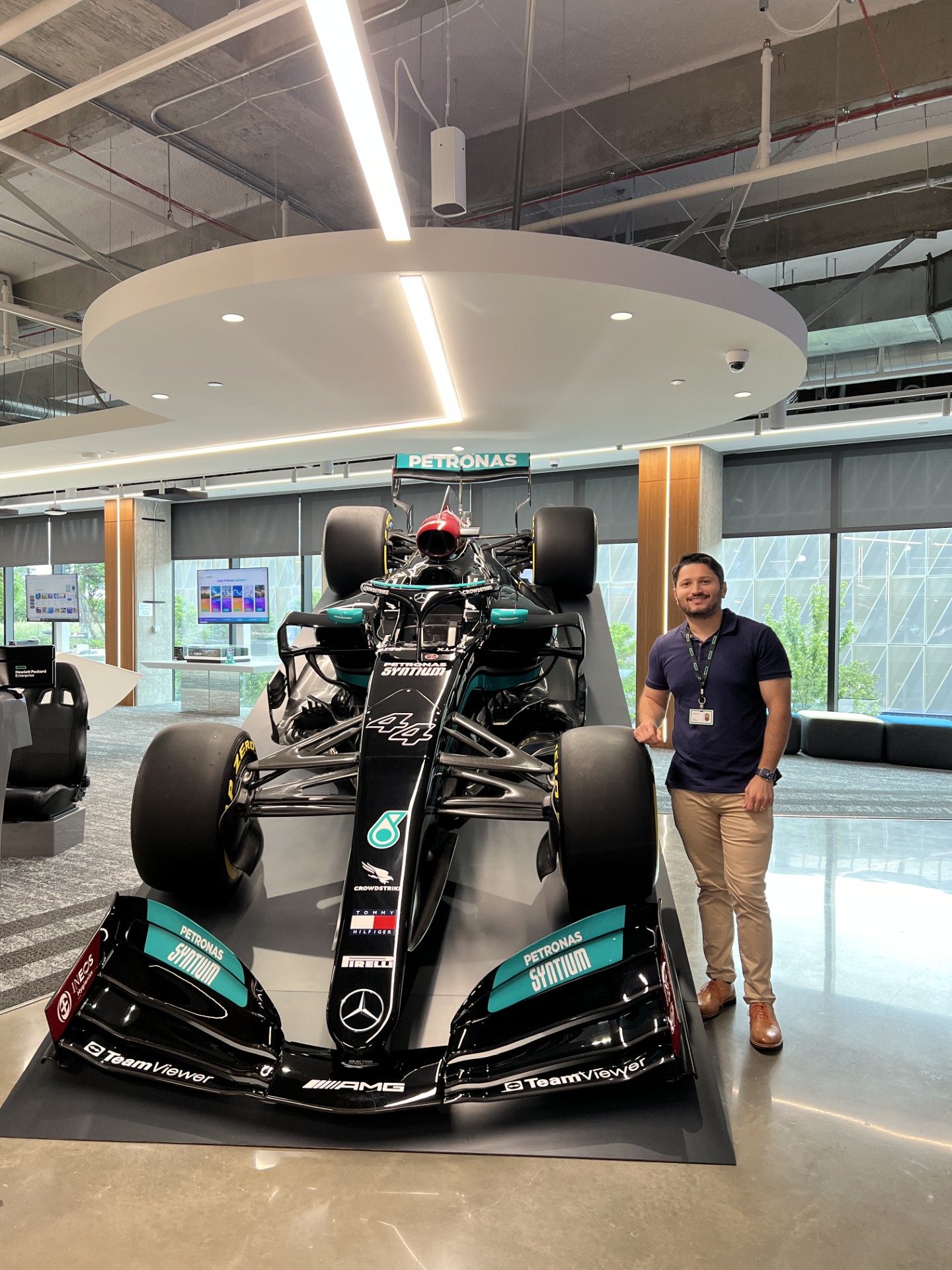
Internship Company: HPE
Internship Department: Finance
Internship Location: Houston, TX
For Viraf Nariman, it was a Partio, or "party on the patio" for the Rice MBA community, that opened the door to an internship opportunity with Hewlett Packard Enterprise (HPE). After attending a sponsored event, meeting recruiters and eventually interviewing, he secured a role in finance.
Between the day-to-day forecasting and performance monitoring, Nariman dove into one main summer project: analyzing order backlogs to find info about potential revenue roadblocks. As one of his first steps toward a career in tech, this internship connected him with lifelong mentors at HPE — many of whom were Rice MBAs themselves. “The MBA experience is a once-in-a-lifetime chance to explore new careers and industries,” he says. “Make sure you take advantage of it!”
Learn more about Nariman's MBA journey here.
Sierra Fredenrich
Internship Company: Microsoft
Internship Department: Commercial cloud and AI
Internship Location: Seattle, WA
Just as she began her MBA last August, Sierra Fredenrich applied for an internship with Microsoft — spending weeks mock interviewing with the Career Development Office (CDO) to prepare as much as possible. She landed a role as a product marketing manager and traveled up to Washington state, where she spent her summer researching market positioning, product sentiment and user experience to ultimately deliver a presentation — which will guide future strategy development at Microsoft.
Her advice for prospective MBAs? Remember your “why.” “There were times I thought, ‘This just isn’t for me…,’ when networking with certain firms, until I interviewed with Microsoft,” Fredenrich says. “The right role will come along, and everything will fall into place.”
Read more about her summer internship here.
Asari Yahata
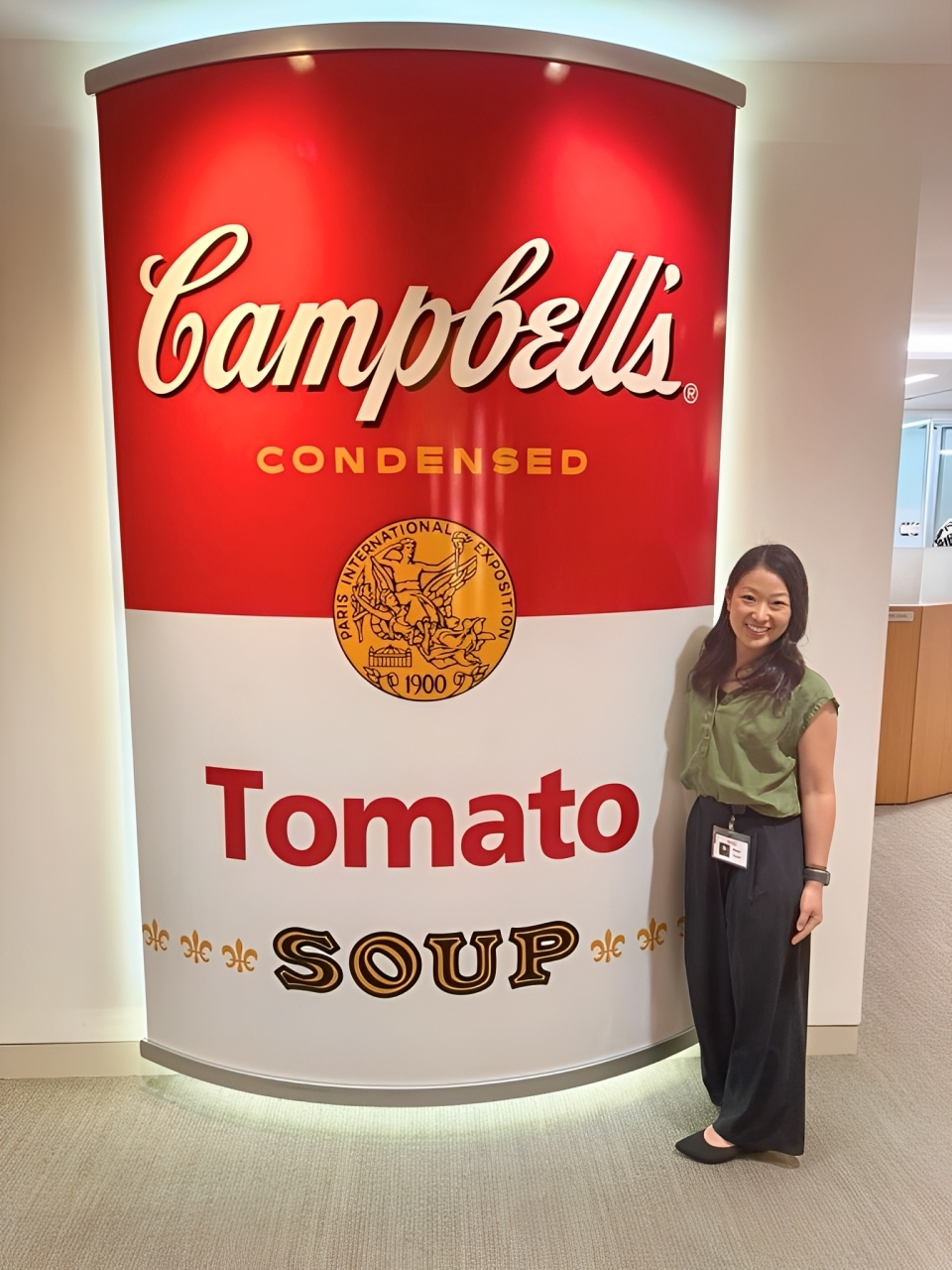
Internship Company: Campbell’s Company
Internship Department: Brand management
Internship Location: New Jersey
Career pivoter Asari Yahata took to Owl Careers to find the right summer internship for her goals — using her strong skills in critical thinking, problem-solving and teamwork to secure a position with Campbell’s. As one of six MBA brand management summer interns at the company, she was assigned ownership of a $650 million brand for which she conducted market research, performed deep data analysis and collaborated with cross-functional teams to identify future growth opportunities.
Crediting her MBA curriculum with helping her confidently solve real-world problems, a highlight of her internship was presenting strategic recommendations to vice presidents and brand managers at the end of the summer. To future MBAs, Yahata says, “Stay humble, keep a positive mindset and embrace the experience as part of your life journey.”
Learn more about Yahata's internship and journey here.
Whether you’re looking to pivot into a new industry or take your expertise to the next level, summer internships are the perfect way to grow your network and skill set. With a dedicated community by your side and opportunities to connect with top recruiters, Rice Business is the place to begin your career transformation.

